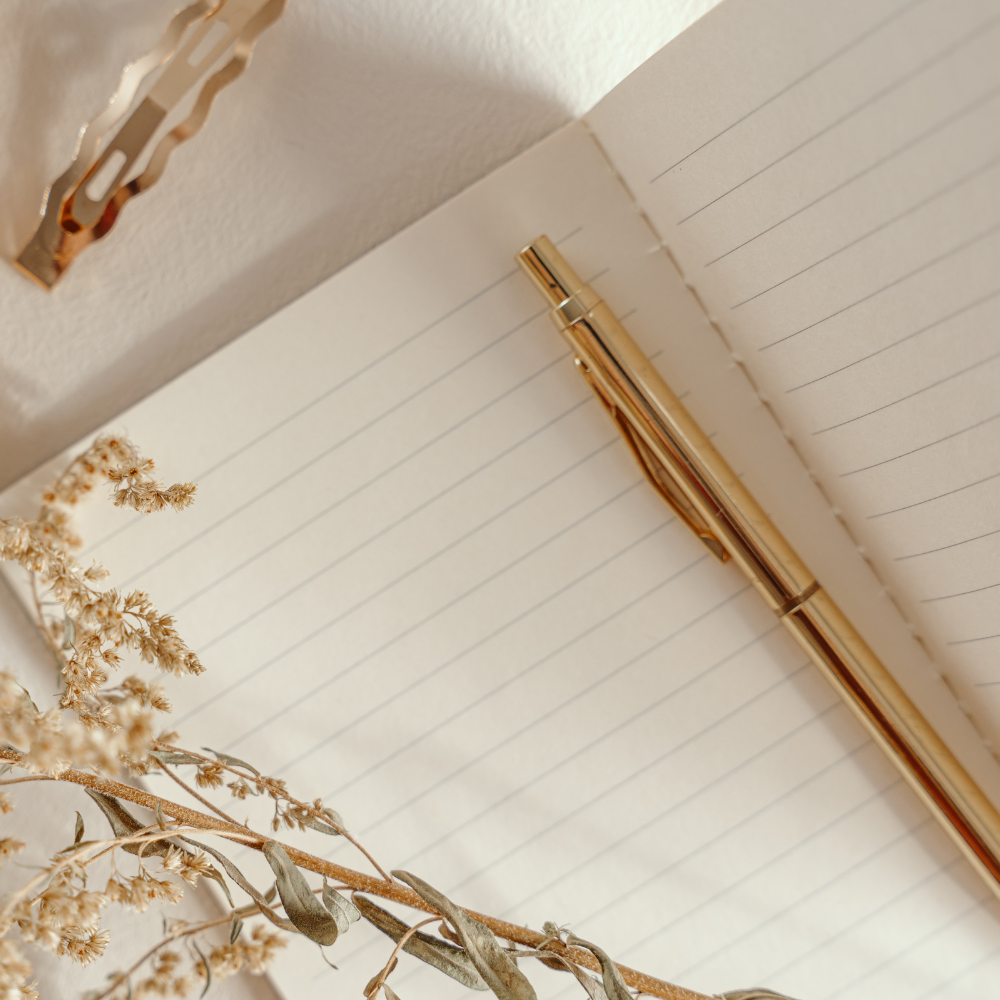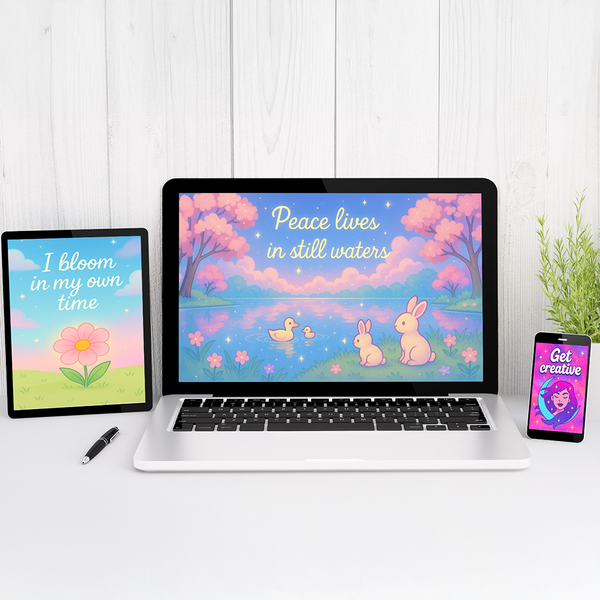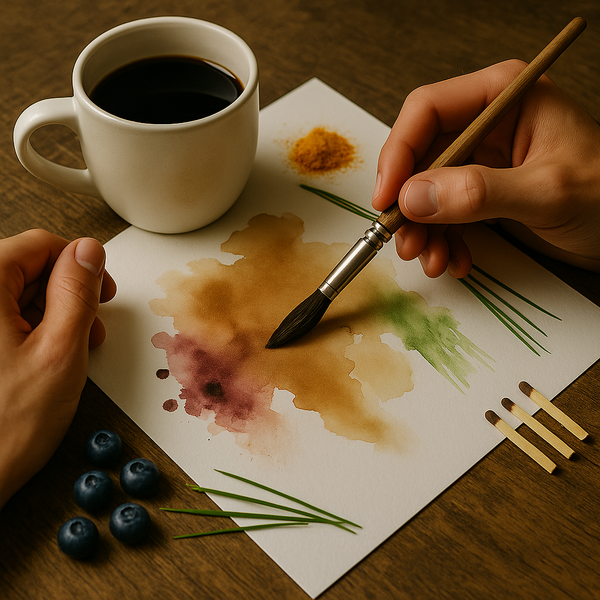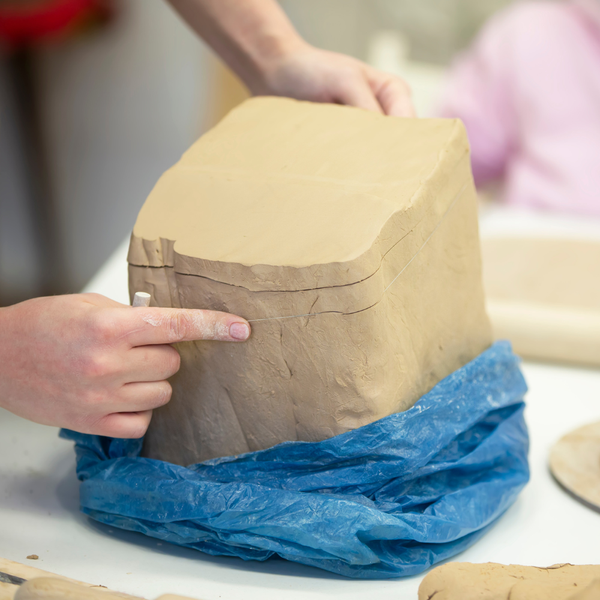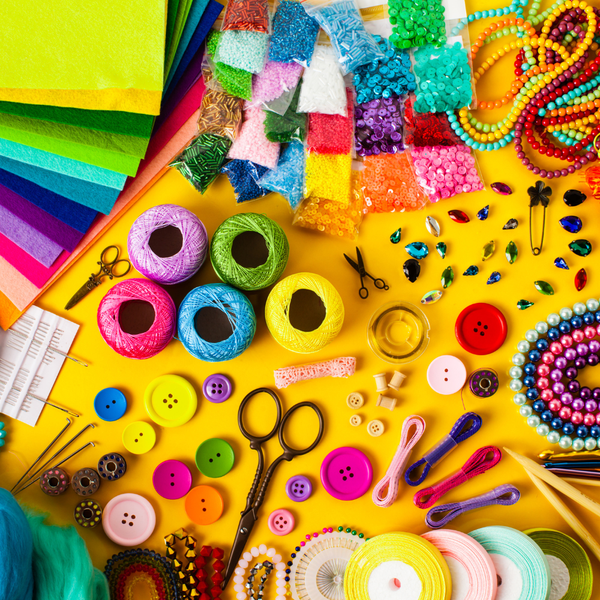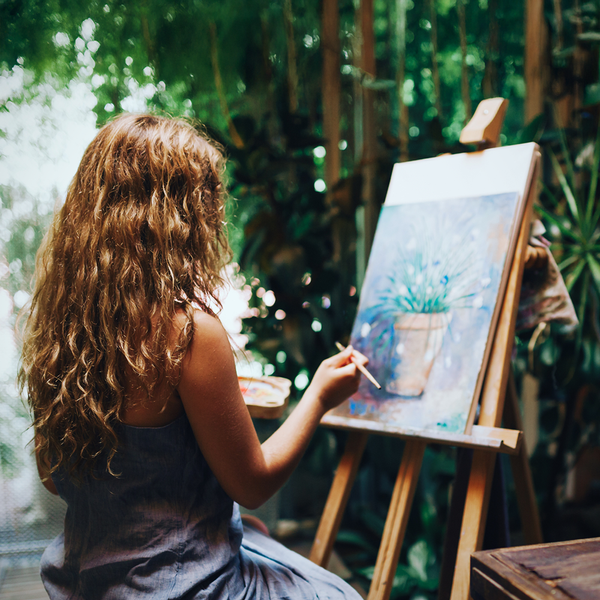Looking to tap into your creativity and express yourself in a more unique and introspective way?
Are you someone who loves doodling, painting, or simply putting pen to paper?
Well, buckle up because we have some exciting news for you!
Welcome to the world of journaling!
Whether you are a seasoned artist looking for new inspiration or a beginner wanting to explore your creativity, journaling is an amazing outlet for self-expression and self-discovery.
Journaling has taken the world by storm with its various forms like art journals, sketchbooks, creative journals, and more.
Whether you're a seasoned artist or just starting out on your creative journey, journaling can be a powerful tool for enhancing your artistic skills while also promoting self-discovery and personal growth.
In this blog post, we'll dive deep into everything you need to know about getting started with journaling – from different types of journals to tips and techniques for unleashing your inner creator.
Get ready to unleash your creativity and unlock new ideas as we explore all things journaling and how they can lead us on a journey of self-exploration.
So, grab your favorite art supplies and let's embark on a journey of self-expression together!
Key Takeaways:
- Understand the basics of starting a journaling practice and how it can benefit your mental and physical health.
- Discover various journaling techniques and tips for beginners to establish a regular journaling habit.
- Learn how to overcome common challenges such as writer's block and maintaining consistency in your journaling routine.
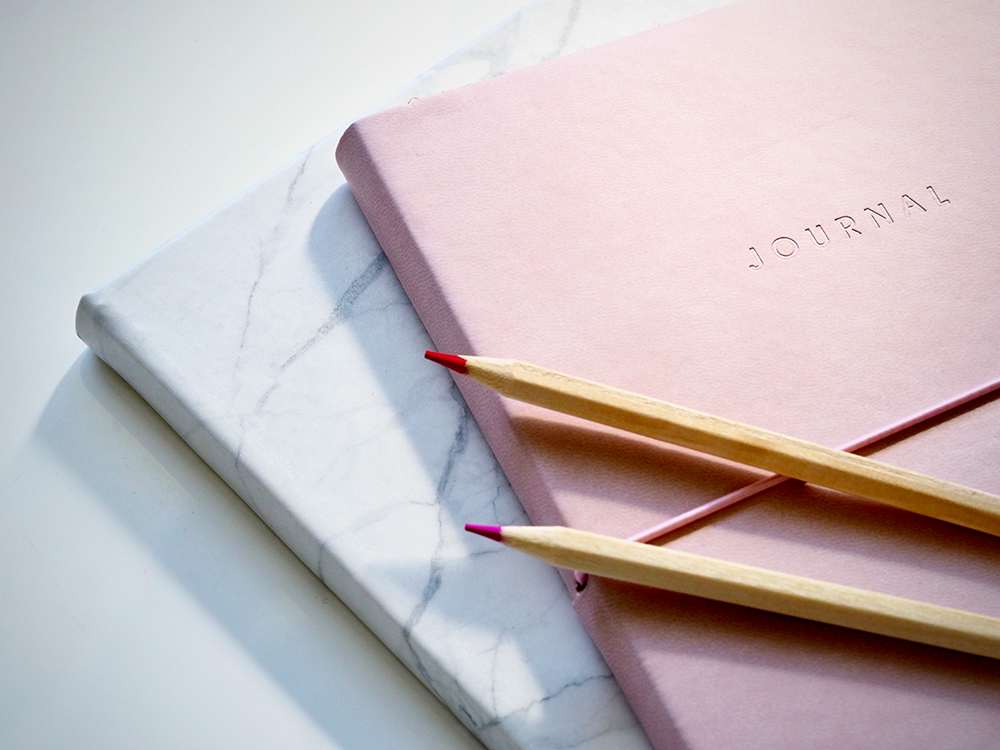
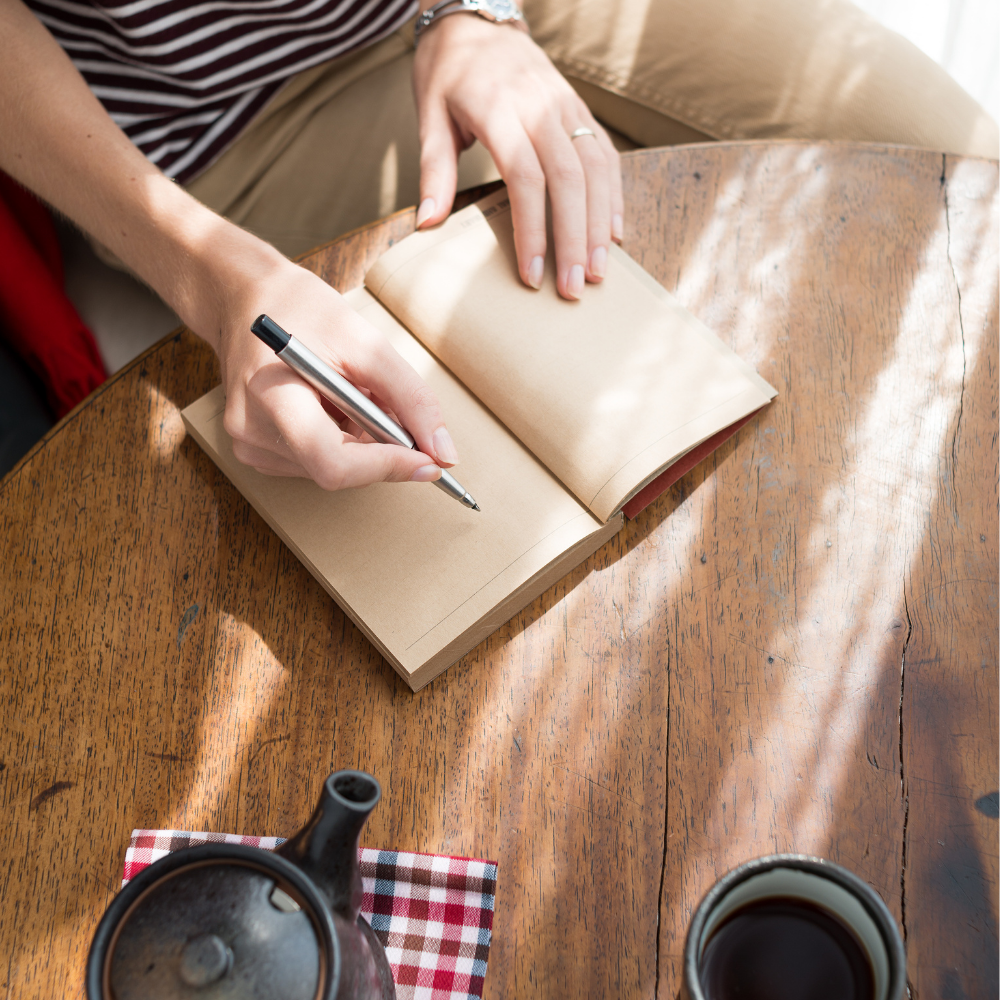
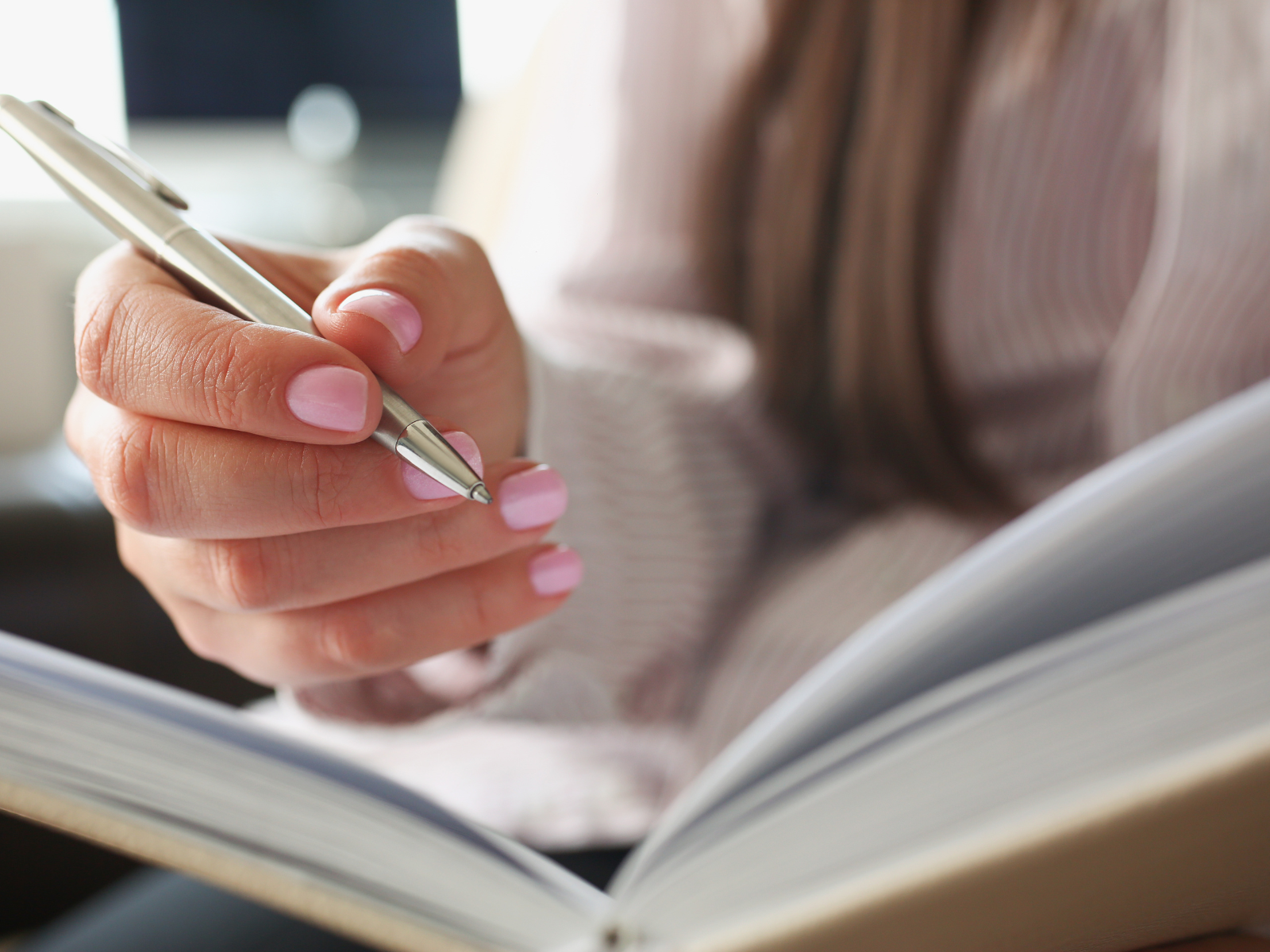
What is Journaling?
Let's face it, life can be tough sometimes and we all need a way to unwind.
Journaling has become a popular way for people to relax, reflect and express themselves creatively.
Whether you are an artist who wants to showcase their talent or someone looking for a fun new hobby, journaling might be just the thing for you!
Journaling is an ancient tradition that has evolved into a modern-day tool for self-improvement, creativity, and mental clarity.
Whether you're looking to manage stress, enhance your self-awareness, or simply keep a record of your daily life, starting a journaling habit can be life-changing.
It's a way to connect with your inner self, explore your thoughts and emotions, and tap into your creative potential.
Through journaling, you can learn more about yourself, find new perspectives on life experiences, and ultimately become more self-aware and mindful.
The Benefits of Journaling
Journaling has been linked to a plethora of mental and physical health benefits.
Engaging in a daily journaling habit can lead to reduced feelings of stress and anxiety, as it provides an outlet for expressing pent-up emotions.
Moreover, the act of writing down your thoughts and feelings can foster a greater sense of self-awareness and personal growth.
By reflecting on your journal entries, you can gain insights into your behavior and thought patterns, which can be instrumental in making positive life changes.
Journaling has also been found to improve memory, boost creativity, and enhance problem-solving skills.
Additionally, it can serve as a form of self-care, allowing you to dedicate time to yourself and your own well-being.
The Power of Reflection
At its core, journaling is a form of self-reflection.
By taking the time to write down your thoughts, experiences, and emotions, you gain a deeper understanding of yourself and the world around you.
Regularly reflecting on a diary entry or journal entry can also provide a sense of closure and help you process difficult emotions or experiences.
It allows you to observe patterns in your thoughts and behaviors, and identify any areas for personal growth or improvement.
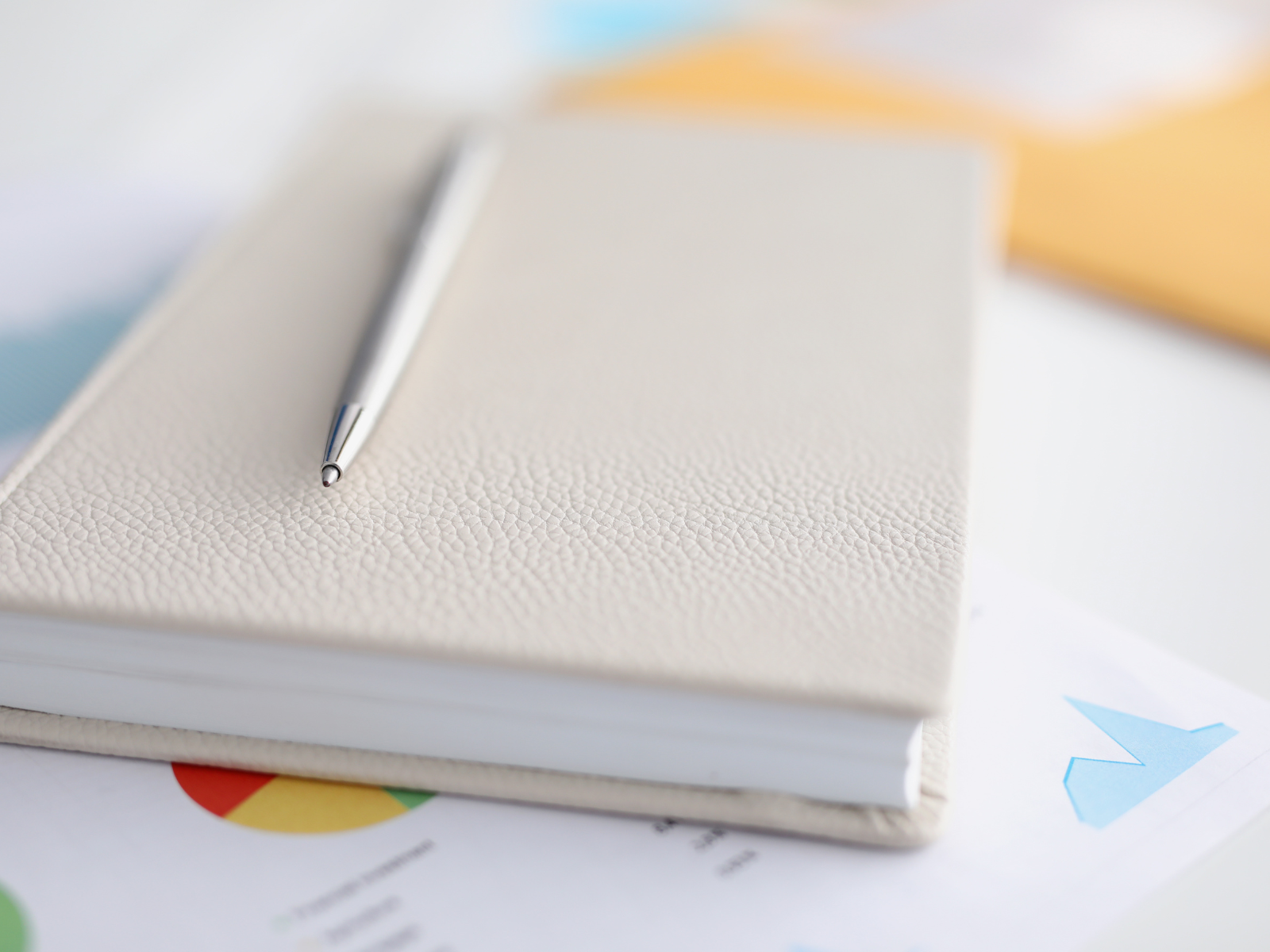

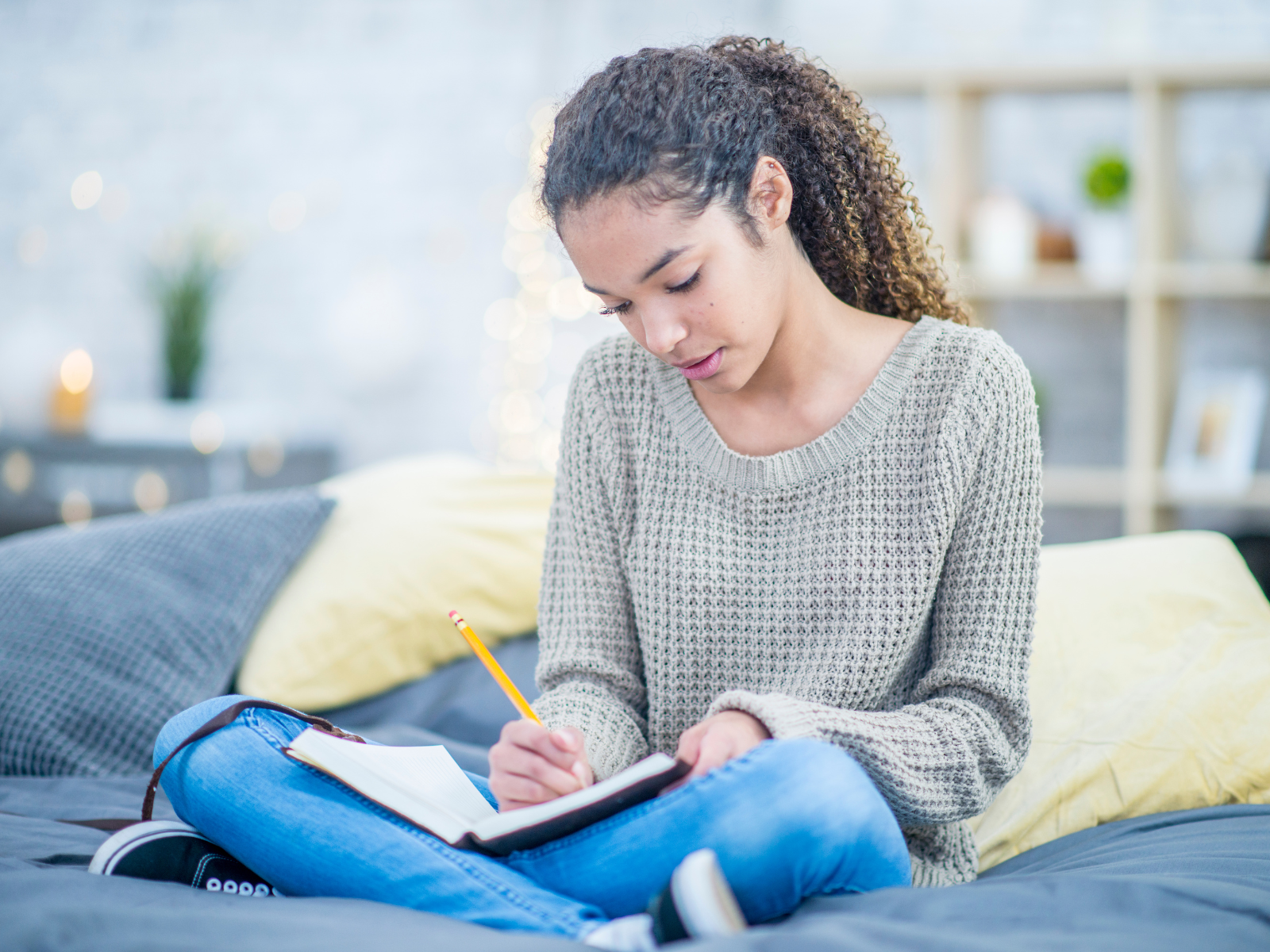
Types of Journals
Before we get into the nitty-gritty of starting a journaling practice, let's first explore the different types of journals you can use.
Each type offers its unique benefits and appeals to different individuals, so feel free to explore and find what works best for you!
Creative Journaling to Spark New Ideas
Creative journaling is an excellent way to unlock the imagination and generate new ideas.
Whether you're an artist, writer, or anyone looking for a burst of creativity, using your journal as a canvas for free writing, sketching, or collaging can stimulate the mind and inspire innovative thinking.
This form of journaling doesn't focus on structure or coherence; instead, it embraces the chaotic flow of creativity.
It's about letting go of the fear of the blank page and allowing your thoughts and ideas to spill out in whatever form they take—there's no right or wrong way to do it.
To begin creative journaling, start with a prompt that excites you or simply write whatever comes to mind.
You might be surprised at what you can come up with when you give yourself the freedom to explore without judgment.
Use your journal to doodle, write stream-of-consciousness entries, or even paste in other decorative elements that inspire you; the key is to enjoy the process of creating without pressure.
Over time, this journaling technique can become an incredible tool for overcoming writer's block, exploring intense emotions, and discovering pent-up creativity.
It's all about finding joy in the act of writing and allowing your journal to be a private space for your most adventurous ideas.
Art Journals for Visual Expression
Art journals are a great way for artists to combine their love for art with journaling.
They provide a space to experiment with different mediums, techniques, and styles while also serving as a form of self-expression.
You can use your art journal to document your ideas, sketch out designs, or simply create beautiful illustrations that reflect your mood and emotions.
Art journaling can be helpful for artists looking to improve their skills, as it allows for a safe space to practice and try new things.
It's also an excellent way to let go of perfectionism and embrace imperfections in your work, leading to a more authentic expression of your thoughts and emotions.
Sketchbooks for Capturing Life's Moments
Sketchbooks are a great way to document your daily life and experiences; they are perfect for those who love to draw and doodle.
They provide a space to let your imagination run wild and practice new techniques without the pressure of producing a final product.
Sketchbooks can also serve as a visual diary, allowing you to document your daily life and the world around you through drawings and sketches.
This journaling technique can help improve your drawing skills, develop a unique style, and serve as a creative outlet for self-expression.
Bullet Journaling for the Organized Mind
Bullet journaling is a popular method that combines planning with journaling.
It's a flexible system that allows you to track your daily life, future goals, and personal reflections all in one place.
Bullet journals often include other decorative elements, making the process both functional and creative.
If you enjoy writing lists and checking off tasks, bullet journaling might be the perfect fit for your journaling work.
It's also a great way to stay organized and focused on your goals while still allowing room for creativity.
You can customize your bullet journal to fit your needs, whether it be tracking daily habits, setting long-term goals, or simply jotting down ideas and thoughts throughout the day.
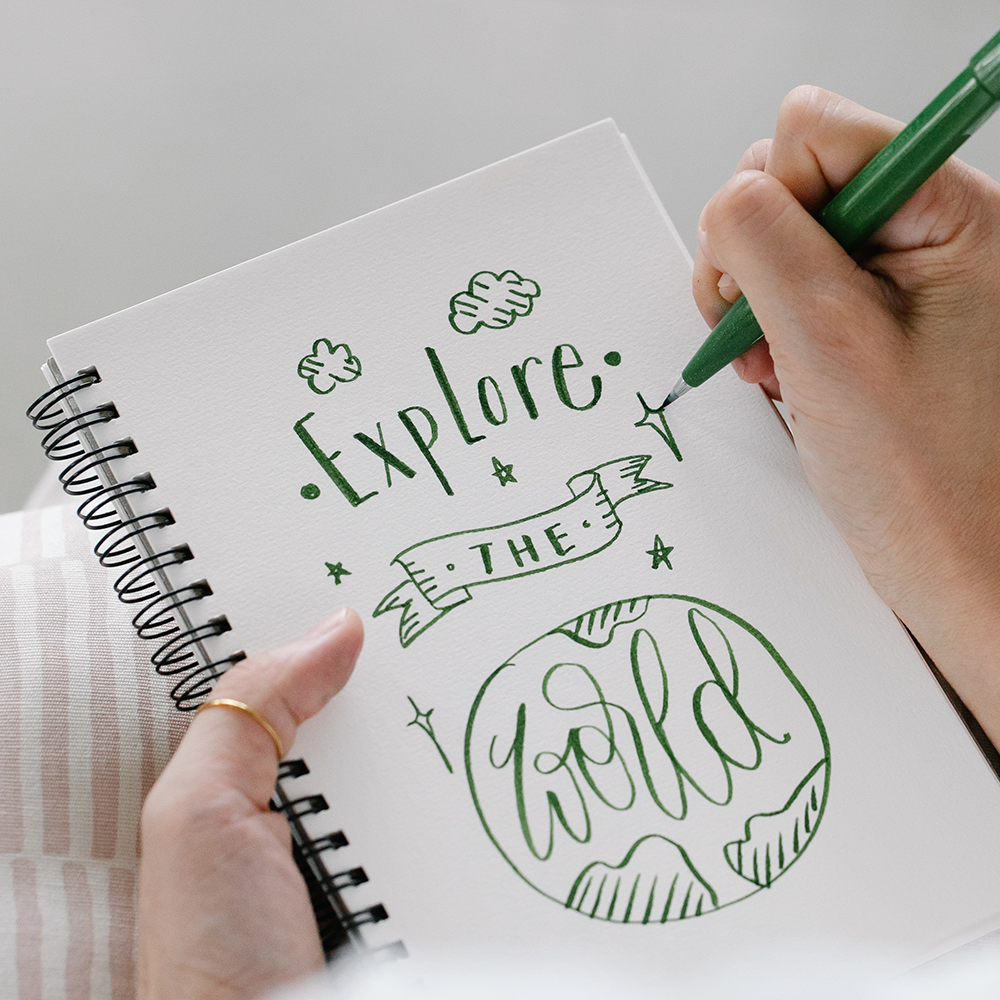
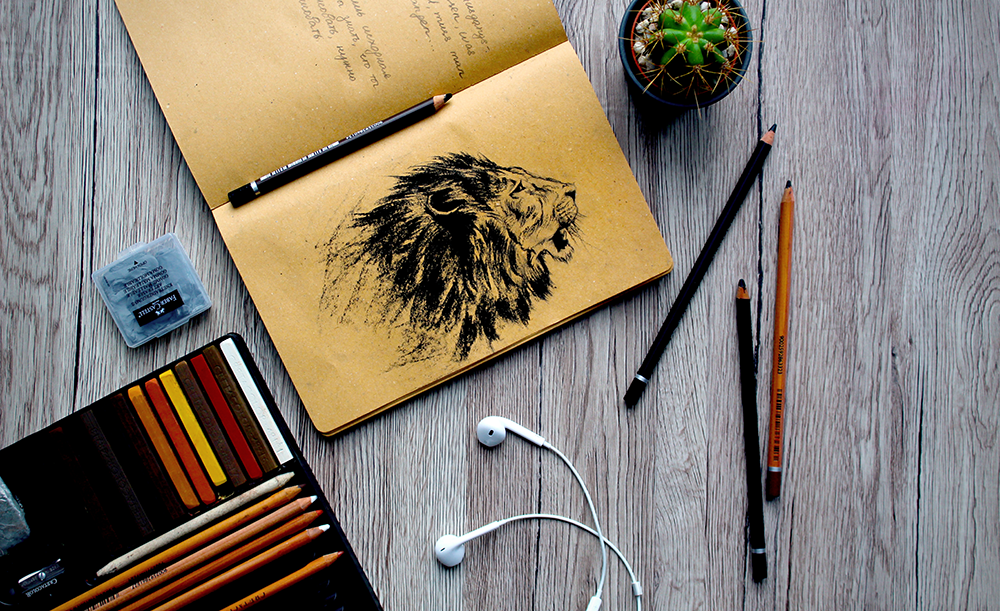
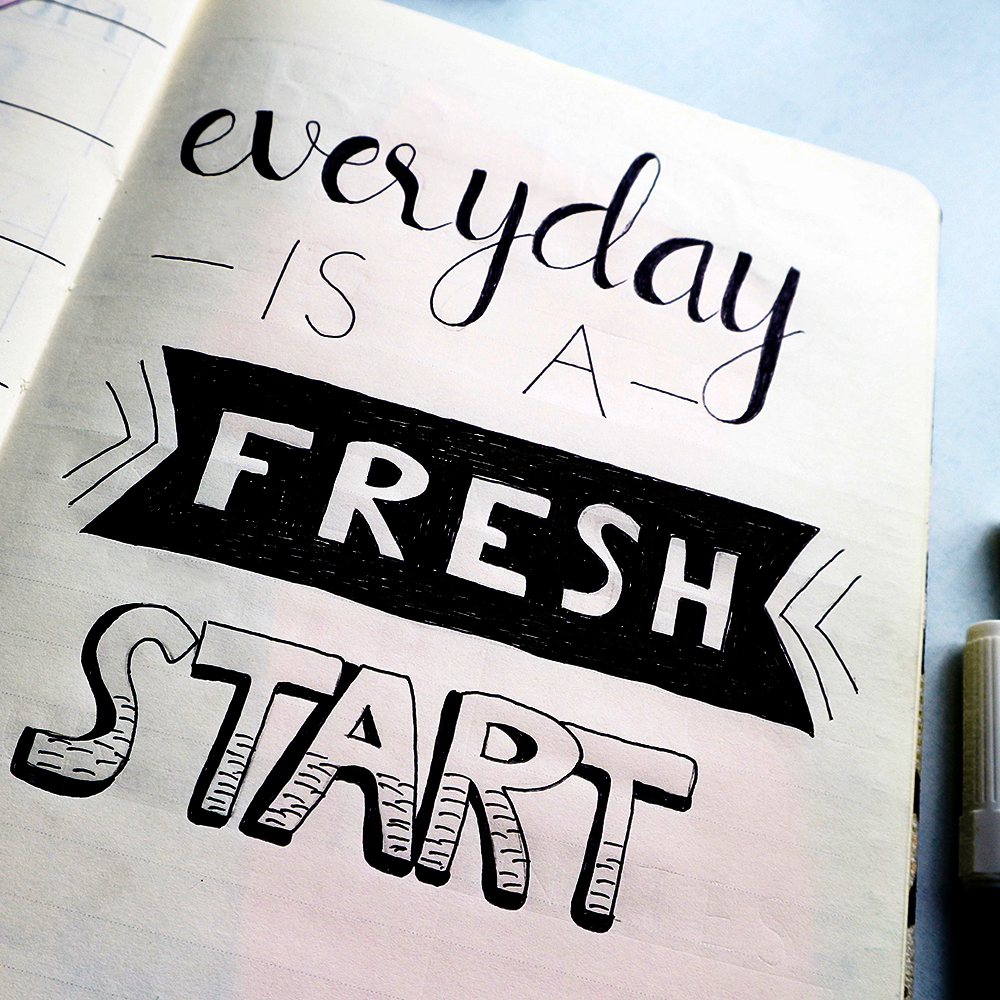
The Art of Gratitude Journaling
Gratitude journaling is a specific type of journaling practice that focuses on expressing gratitude for the positive aspects of your life.
This technique has been shown to improve mental health by shifting focus away from negative thoughts and towards appreciation.
Each day, write down a few things you're grateful for, whether it's a beautiful notebook you enjoy journal writing in or the simple pleasure of your morning coffee.
Over time, this practice can help cultivate a more positive mindset and improve overall well-being.
Journaling for Enhanced Self-Awareness and Mindfulness
Journaling is an incredible tool for fostering self-awareness and mindfulness.
By dedicating a few minutes each day to write pages in your personal journal, you engage in a practice that brings your focus to the present moment.
This act of mindfulness can have profound effects on both mental and physical health.
When you begin writing, you're not just recording events; you're reflecting on your experiences, which can lead to greater self-discovery and personal growth.
Writing prompts can guide you to explore areas of your life that require attention, helping you become more self-aware.
The journaling process can also serve as a therapeutic exercise to manage pent-up emotions.
By allowing yourself to express gratitude or articulate intense emotions through journal entries, you create a space for emotional release and healing.
Gratitude journaling, in particular, is a powerful technique to cultivate positivity in everyday life.
By taking the time to write honestly about the things you're grateful for, you can shift your perspective and recognize the life-changing benefits of appreciating the small joys.
Whether it's in a beautiful notebook or a digital journal, the act of expressing gratitude can significantly enhance your mental health and overall well-being.
Incorporating mindfulness into your journaling can have life-changing benefits for your mental health and everyday life.
Mindfulness journaling is about being present in the moment and observing your thoughts and feelings without judgment.
Start writing with the intention of grounding yourself in the present moment.
This could involve describing your current surroundings, noting the sensations in your body, or expressing gratitude for the day's experiences.
By focusing on the now, you can cultivate a sense of peace and self-awareness that extends beyond the pages of your journal.
Moreover, regular journaling habit with a focus on mindfulness can help you become more self-aware and attuned to your internal state.
It can be as simple as taking a few minutes during your lunch break or right after your morning coffee to jot down your thoughts in a paper journal or a notes app.
The key is to make it a daily journaling habit, allowing the practice to become a private space for reflection and growth.
As you begin journaling with mindfulness, you may notice a shift in how you perceive and react to the world around you, leading to a more balanced and fulfilling life.
Digital Journaling: Modern Twist to Traditional Writing
Digital journaling has revolutionized the way we capture our thoughts and memories.
With the advent of technology, how to start journaling has taken on new dimensions, offering a plethora of digital tools to enhance the journaling habit.
Unlike the conventional paper journal, digital platforms provide the flexibility of syncing across devices, ensuring that your journal entries are accessible anytime, anywhere.
This convenience means that your daily journaling habit can seamlessly integrate into your daily life, without the fear of losing a physical journal.
For beginners wondering how to start journaling, digital journals can be a less intimidating start.
The blank page syndrome is mitigated with digital journals as they often come with built-in journal prompts and journaling tips to kickstart your writing routine.
Moreover, features like password protection offer a private space for writing honestly and freely, encouraging users to express intense emotions without the fear of intrusion.
Whether it's during a lunch break or right after your morning coffee, digital journaling can be done with just a few taps on your notes app, making it easier to maintain a regular journaling habit.
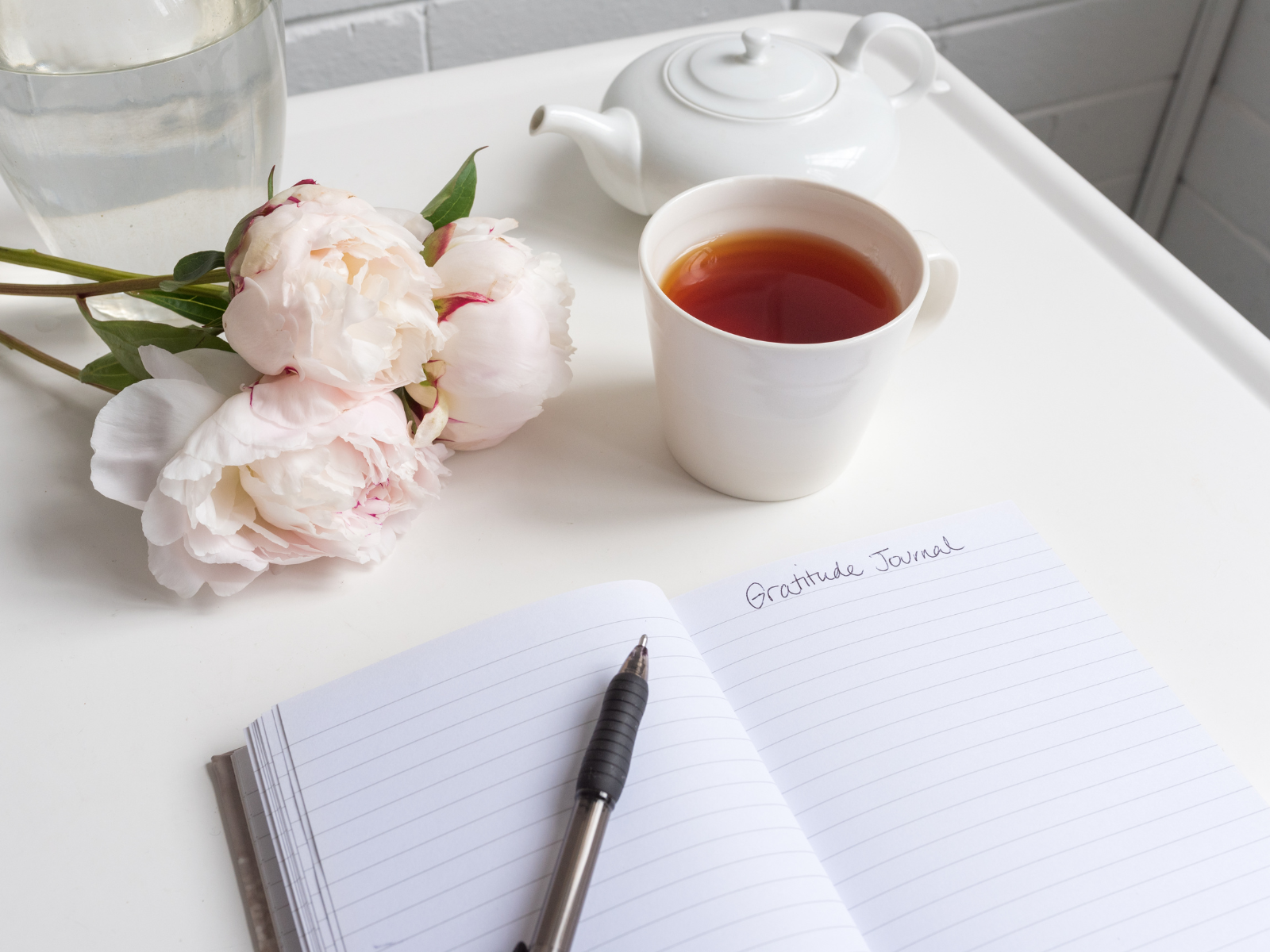
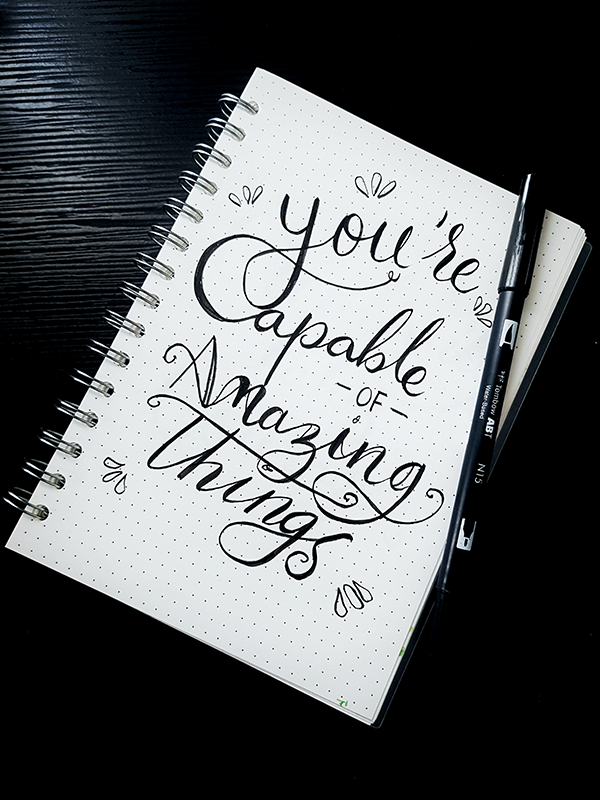
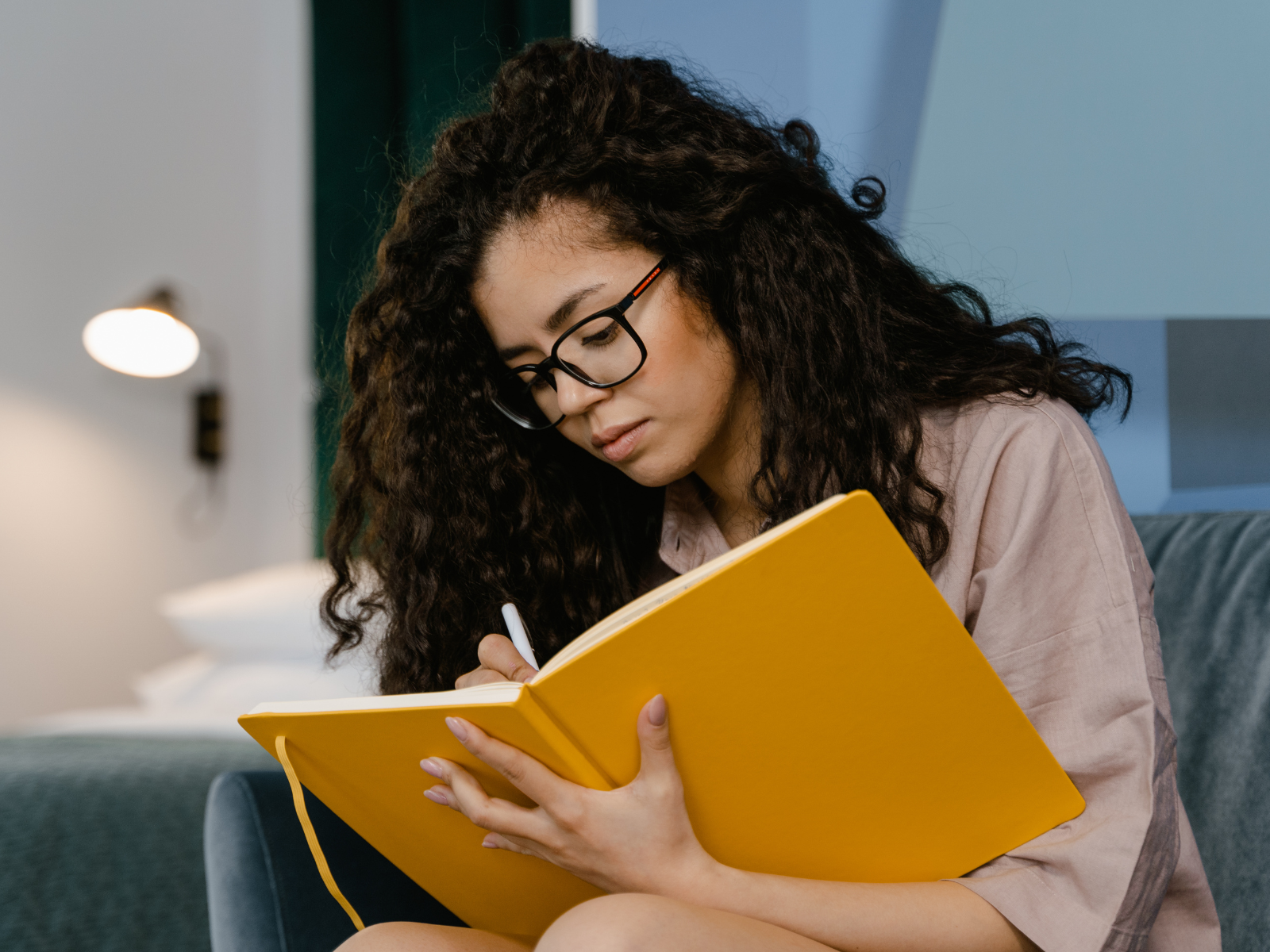
Choosing Your Journaling Medium
The first step in beginning your journaling journey is to decide whether you prefer a traditional paper journal or a digital journal.
Both have their advantages: a physical journal offers a tangible, private space for your thoughts, and there's something special about putting pen to paper.
On the other hand, digital journals can be more convenient, with notes apps allowing you to journal anytime, anywhere.
Consider your lifestyle and which option would make it easier for you to maintain a daily journaling habit.
You may even find that a combination of both mediums works best for you, depending on the type of journaling.
Establishing a Writing Routine
Consistency is key when it comes to journaling.
To start journaling effectively, it's important to establish a writing routine that fits into your everyday life.
Some people find that journaling over morning coffee helps them set the tone for the day, while others prefer to reflect on the day's events with a few minutes of writing before bed.
Find a time that works for you, whether it's during your lunch break or right after your morning pages, and commit to it.
Consider setting a reminder on your phone or incorporating journaling into your daily schedule to make it a regular habit.
Overcoming the First Blank Page
The first blank page of a new journal can be intimidating.
To begin writing, simply start with what's on your mind at the present moment.
Don't worry about the right or wrong way to write; the goal is to get your thoughts flowing.
You can also use journal prompts to spark ideas or engage in free writing, where you write down whatever comes to mind without judgment or editing.
Remember, your journal is a private space for you to express yourself freely without fear of judgment.

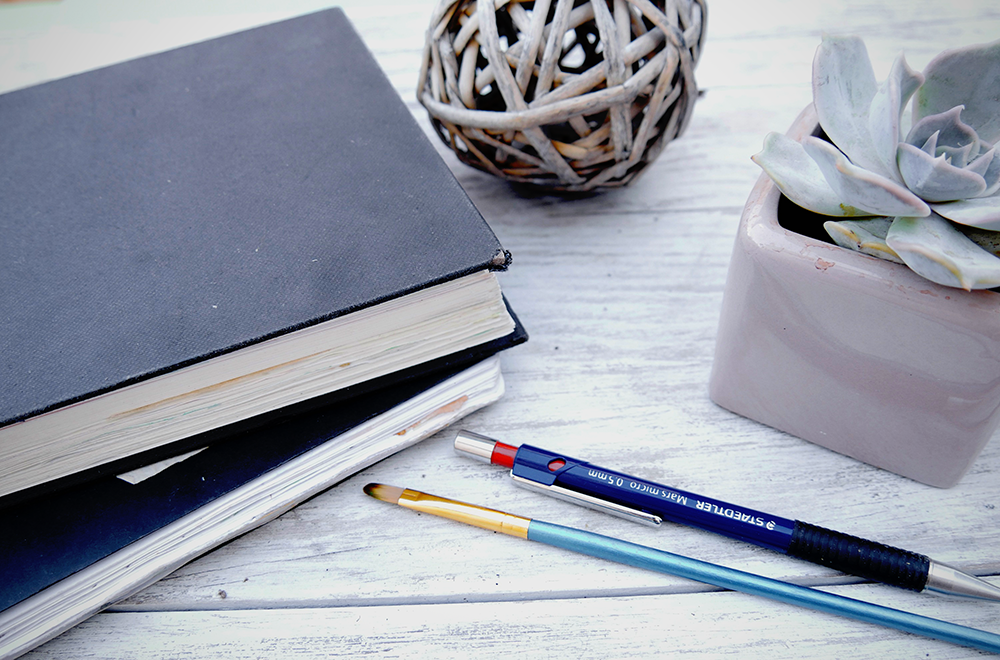
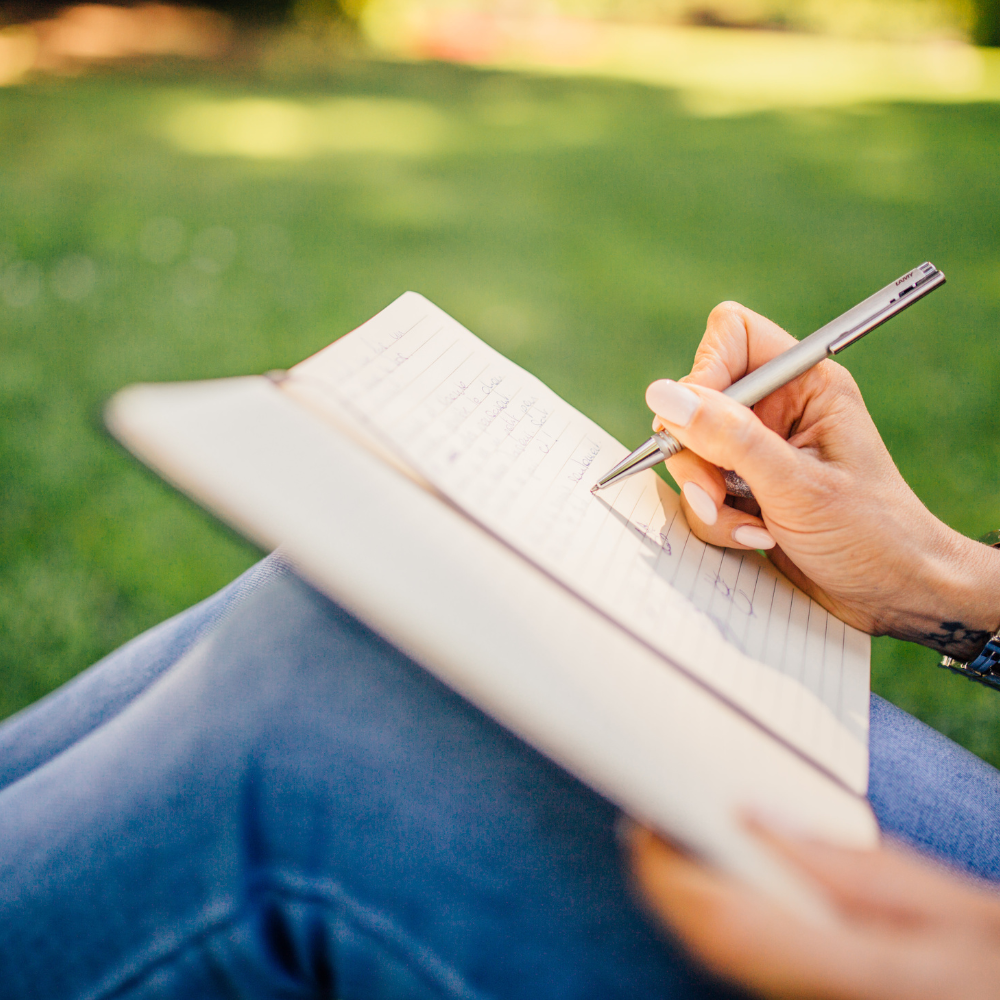
Journaling Prompts to Ignite Your Practice
Journal prompts are an incredible tool for those new to journaling or experiencing writer's block.
They can guide your thoughts and help you delve into topics you might not have considered.
Prompts can range from simple questions like "What am I grateful for today?" to more complex ones that explore your goals, fears, and dreams. Incorporating journaling prompts into your daily routine can enhance your self-discovery process.
You can find prompts online, in books specifically designed for journaling, or come up with your own based on personal interests and experiences.
Here are some example prompts to get you started:
- What am I grateful for today?
- What emotions have I been experiencing lately, and how can I process them through writing?
- If money wasn't a concern, what would my dream life look like?
- What are some self-care practices that make me feel recharged and rejuvenated?
- Reflect on a recent challenge or failure. What did you learn from it?
- Write about a person who has had a significant impact on your life and why.
- What are five things that bring you joy, and how can you incorporate them into your daily routine?
Remember, journaling is a personal practice, so don't be afraid to explore different prompts and find what works best for you.
Writing Honestly and Freely
One of the most important journaling tips for beginners is to write honestly.
Your journal is a private space where you can express your most intense emotions and thoughts without fear of judgment.
The more honest you are in your journal entries, the more you'll benefit from the journaling process.
Remember, there's no need to censor yourself; enjoy journaling as a safe space for self-expression.
Writing freely without judgment or editing can also help improve your writing skills and lead to a more authentic reflection of yourself.
The Journey of Self-Discovery
Journaling is not just about documenting your daily life; it's an ongoing journey of self-discovery.
As you continue to write, you'll uncover aspects of yourself that you may not have recognized before.
Embrace this process and allow your journaling practice to evolve with you.
Over time, you may notice a shift in your mindset, emotions, and overall well-being as a result of regular self-reflection through journaling.
Reflective Journaling for Personal Growth
Reflective journaling is a powerful tool for personal growth and self-awareness.
By dedicating time to reflect on daily experiences, individuals can gain insights into their behaviors, thoughts, and emotions.
This practice involves writing down events of the day, the feelings associated with them, and the lessons learned.
Reflective journaling goes beyond simply recording events; it requires analyzing and understanding the impact of those events on one's life.
This deeper level of journaling can lead to significant personal transformation, as it encourages individuals to confront their innermost thoughts and feelings head-on.
Incorporating reflective journaling into your daily journaling habit can be life-changing.
Start by setting aside a few minutes each day—perhaps during your morning coffee or right before bed—to write down what happened during the day and how it made you feel.
Ask yourself questions like, "What did I handle well today?" or "What could I have done differently?"
This practice not only helps in becoming more self-aware but also in recognizing patterns in behavior that may need adjusting.
Over time, these journal entries serve as a roadmap of personal evolution, showing how far you've come and guiding you towards where you want to be.
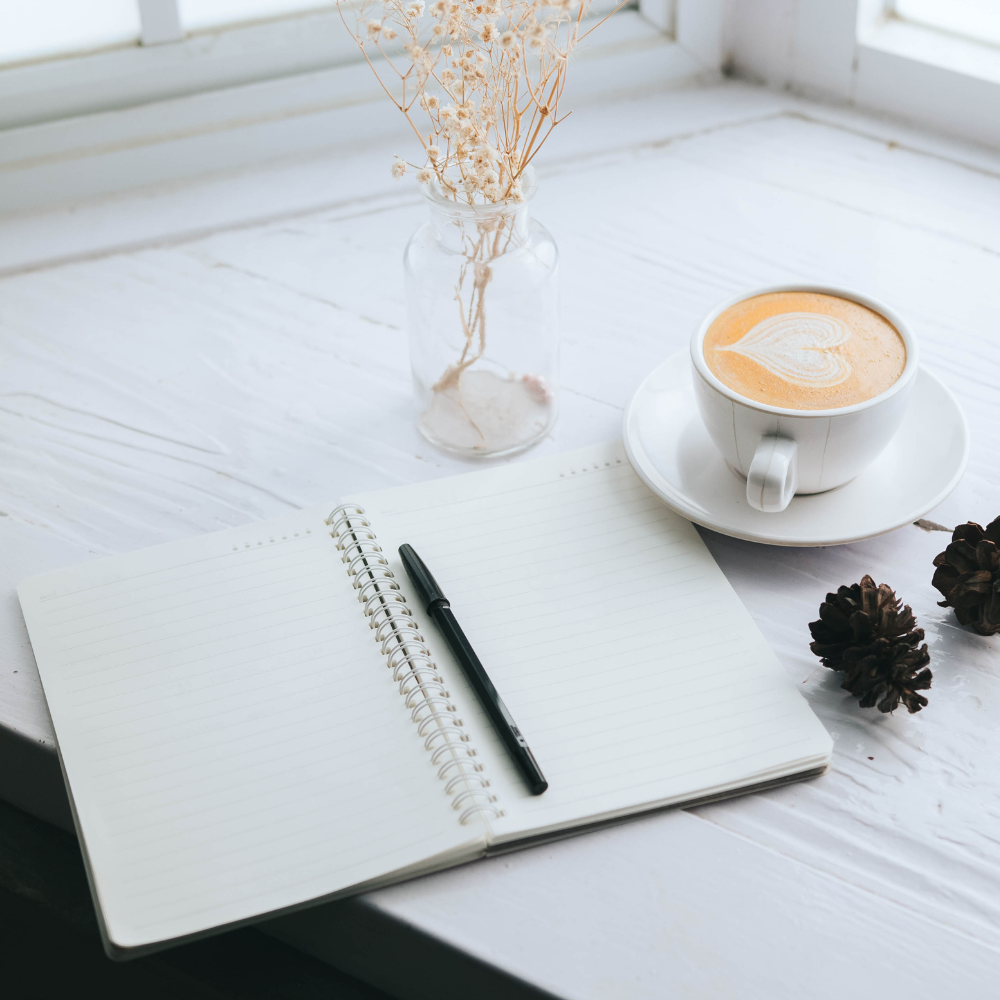
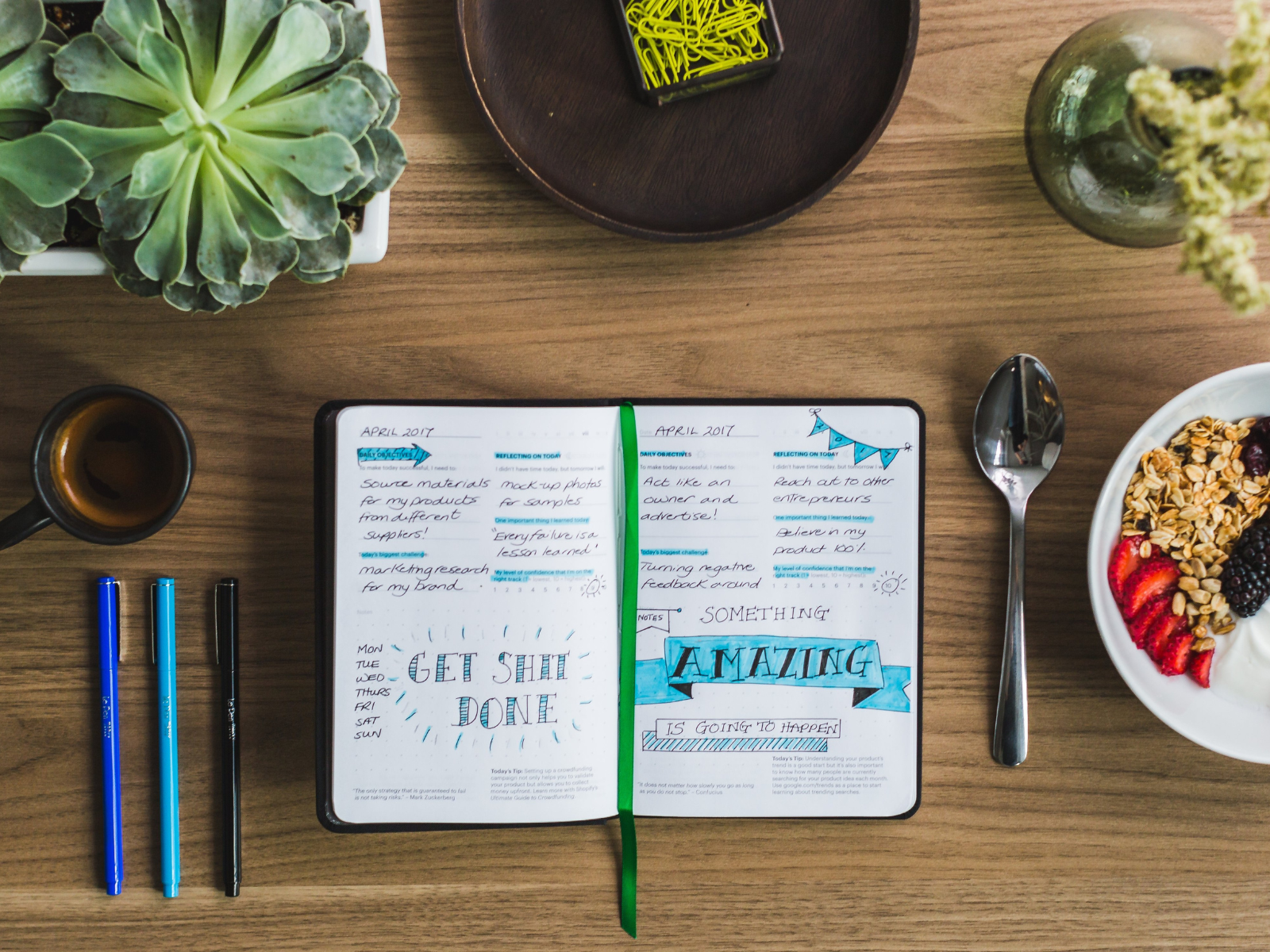

Incorporating Journaling into Professional Life
Journaling isn't just for personal reflection; it can also be a valuable tool in your professional life.
Keeping a journal can help you track progress on projects, brainstorm new ideas, and reflect on challenges and successes.
By writing things down, you become more self-aware and can approach your work with greater clarity and focus.
You can also use journaling to set goals and hold yourself accountable for achieving them.
Whether you're a student, entrepreneur, or working professional, journaling can be a powerful tool for personal and professional growth.
The Link Between Journaling and Mental Health
The connection between journaling and mental health is well-documented.
Regular journaling can lead to improved mood and reduced feelings of depression and anxiety.
By writing down your thoughts and feelings, you're able to process and understand them more deeply, which can be therapeutic.
If you're struggling with mental health issues, consider incorporating journaling into your self-care routine.
Remember, journaling is not a replacement for professional help but can serve as a valuable complement to therapy or other forms of treatment.
Journaling as a Tool for Managing Stress
Journaling has emerged as an incredible tool for managing stress, providing a private space for individuals to spill out intense emotions and pent-up feelings onto a page.
By beginning a journaling habit, you create an outlet for the stresses of daily life, allowing you to process and understand your emotions more clearly.
The act of writing down your worries and fears can be a form of release, reducing feelings of anxiety and contributing to better mental and physical health.
Regular journaling can transform a daunting blank page into a comforting confidant.
For those wondering how to start journaling for stress relief, the key is to make it a daily journaling habit.
Start by dedicating a few minutes each morning or evening to write pages in your personal journal.
This could be during your morning coffee or right before bed.
The journal entries don't have to be long or profound; even jotting down a few bullet points about the day's events or your feelings can be beneficial.
Over time, this practice can become a cornerstone of your routine, offering a sense of calm and a moment of reflection in the present moment.
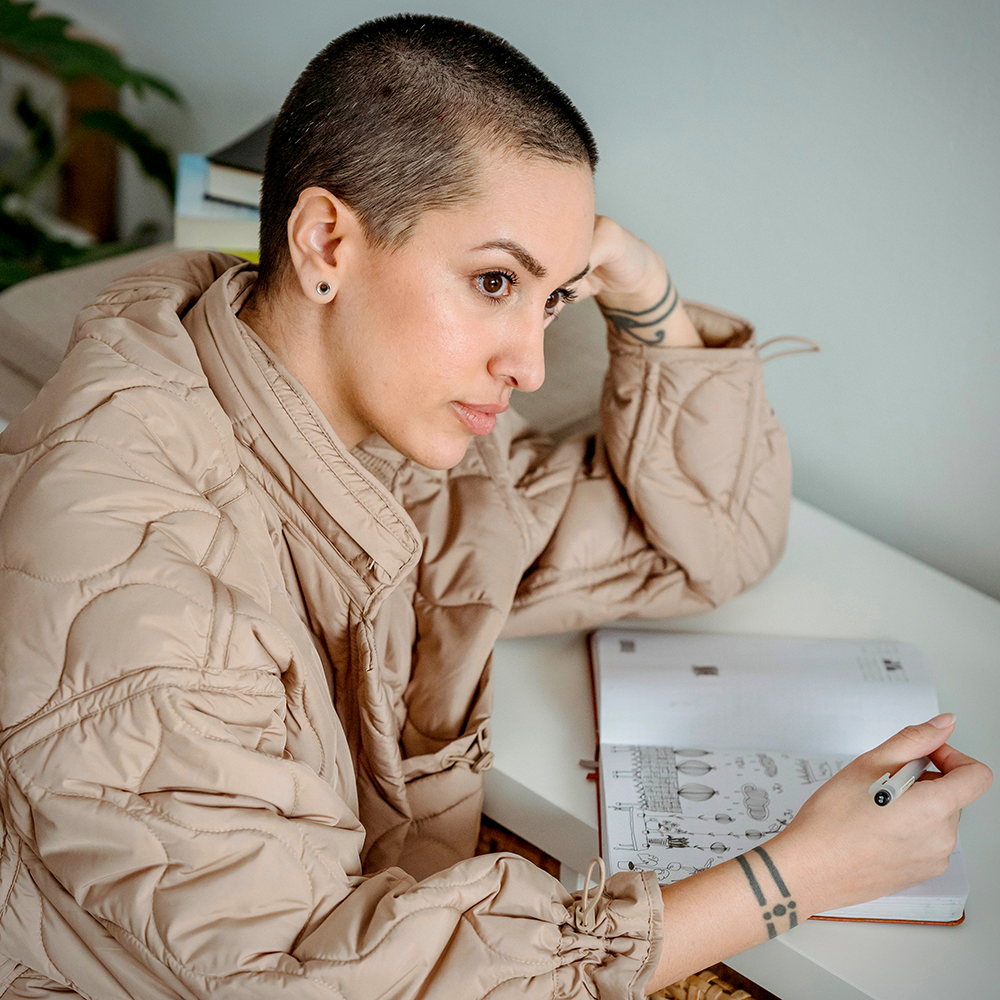

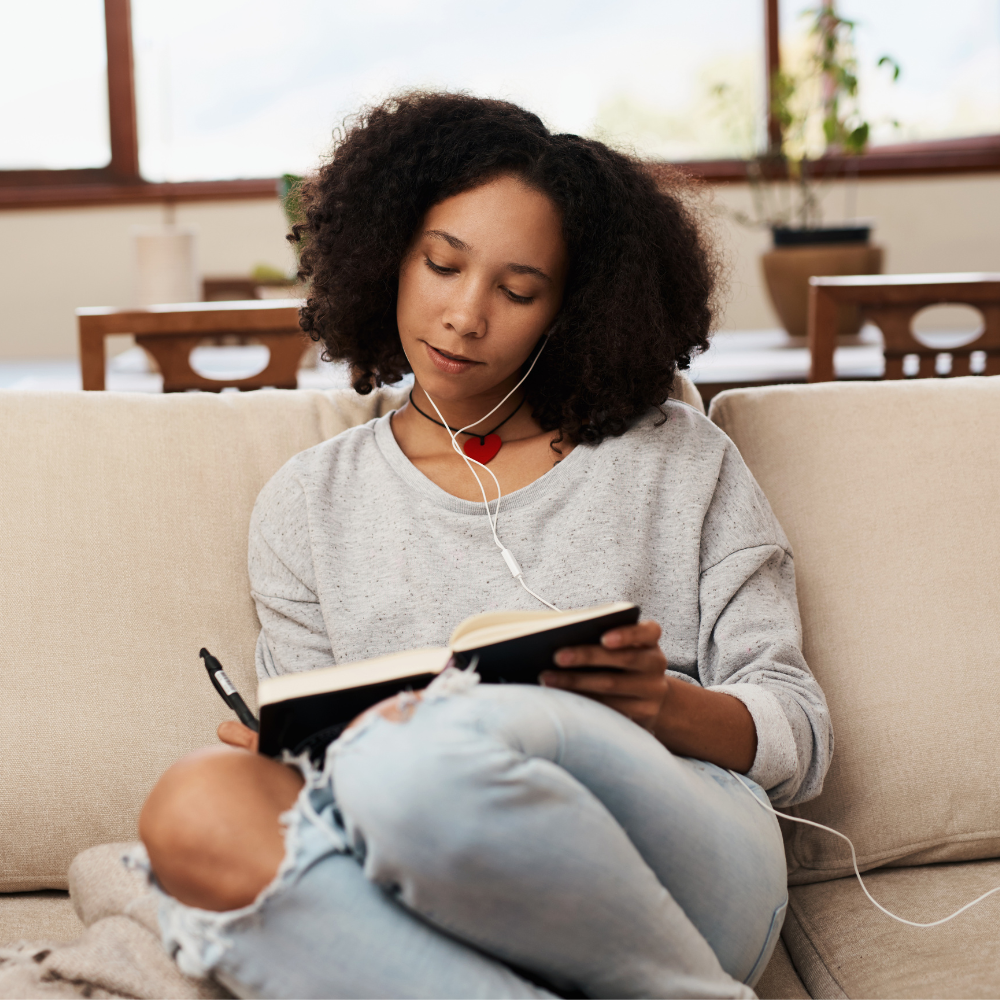
Personalizing Your Journaling Practice
One of the best things about journaling is that it's entirely customizable.
You can incorporate different techniques, mediums, and writing styles into your practice to make it unique to you.
Don't be afraid to experiment with different prompts, mediums, and routines to find what works best for you.
Journaling is a personal journey, so make it your own.
Exploring Different Journaling Styles
Journaling is not a one-size-fits-all activity, and exploring different journaling styles can be a transformative part of your journaling practice.
Whether you prefer the structured approach of bullet journaling or the free-flowing nature of expressive writing, each style offers unique benefits.
For those who thrive on organization, bullet journals serve as a way to track daily to-dos, future goals, and personal reflections, all in one place.
The use of symbols, index pages, and future logs can turn your journal into an incredible tool for productivity and self-discovery.
On the other hand, expressive writing allows for the release of intense emotions and pent-up feelings.
This style encourages you to write pages without concern for grammar or structure, focusing instead on pouring out thoughts and emotions as they come.
It's a powerful way to confront and work through personal challenges, leading to reduced feelings of stress and anxiety.
By experimenting with different journaling techniques, you can find the method that best suits your needs and enhances your mental and physical health.
Enhancing Creativity Through Journaling
Journaling isn't just a method for self-discovery and mental health; it's also a powerful way to spark new ideas and enhance creativity.
When you begin journaling, you open up a channel for your thoughts and imagination to flow freely.
There's no right or wrong way to do it—some people enjoy writing morning pages, where they write stream-of-consciousness entries as soon as they wake up, while others may prefer bullet journaling, which includes other decorative elements and structured planning.
Both techniques can lead to unexpected creative breakthroughs and a richer inner life.
To incorporate creativity into your journaling practice, consider using writing prompts or engaging in free writing sessions.
Writing prompts can guide you to explore different themes and subjects, pushing the boundaries of your imagination.
Free writing, on the other hand, encourages you to write honestly and without inhibition, which can lead to the discovery of new ideas and perspectives.
Whether you're using a beautiful notebook or a simple notes app, the key is to enjoy writing and allow your creativity to unfold naturally.
With time, journaling can become an essential part of your everyday life, enriching your professional life and personal growth with a wealth of new ideas.
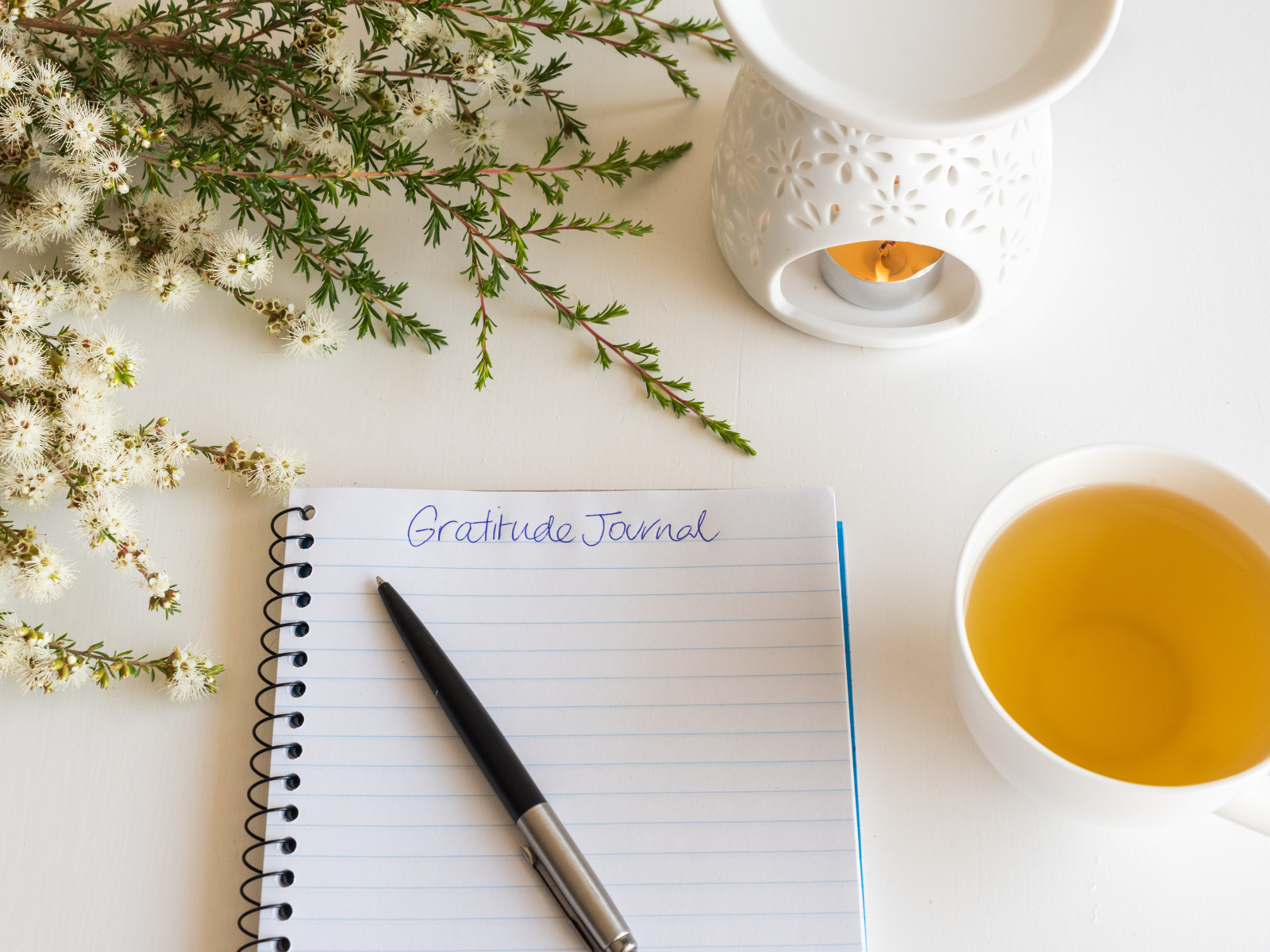
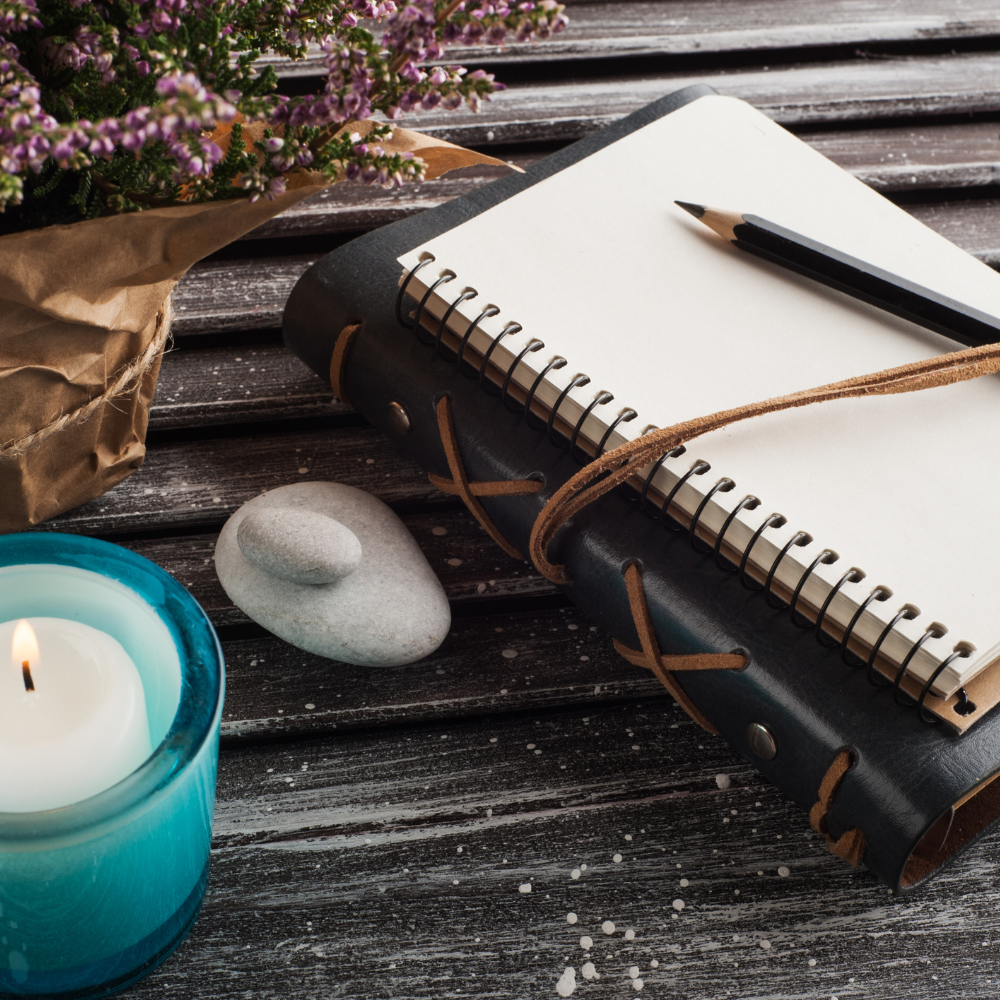
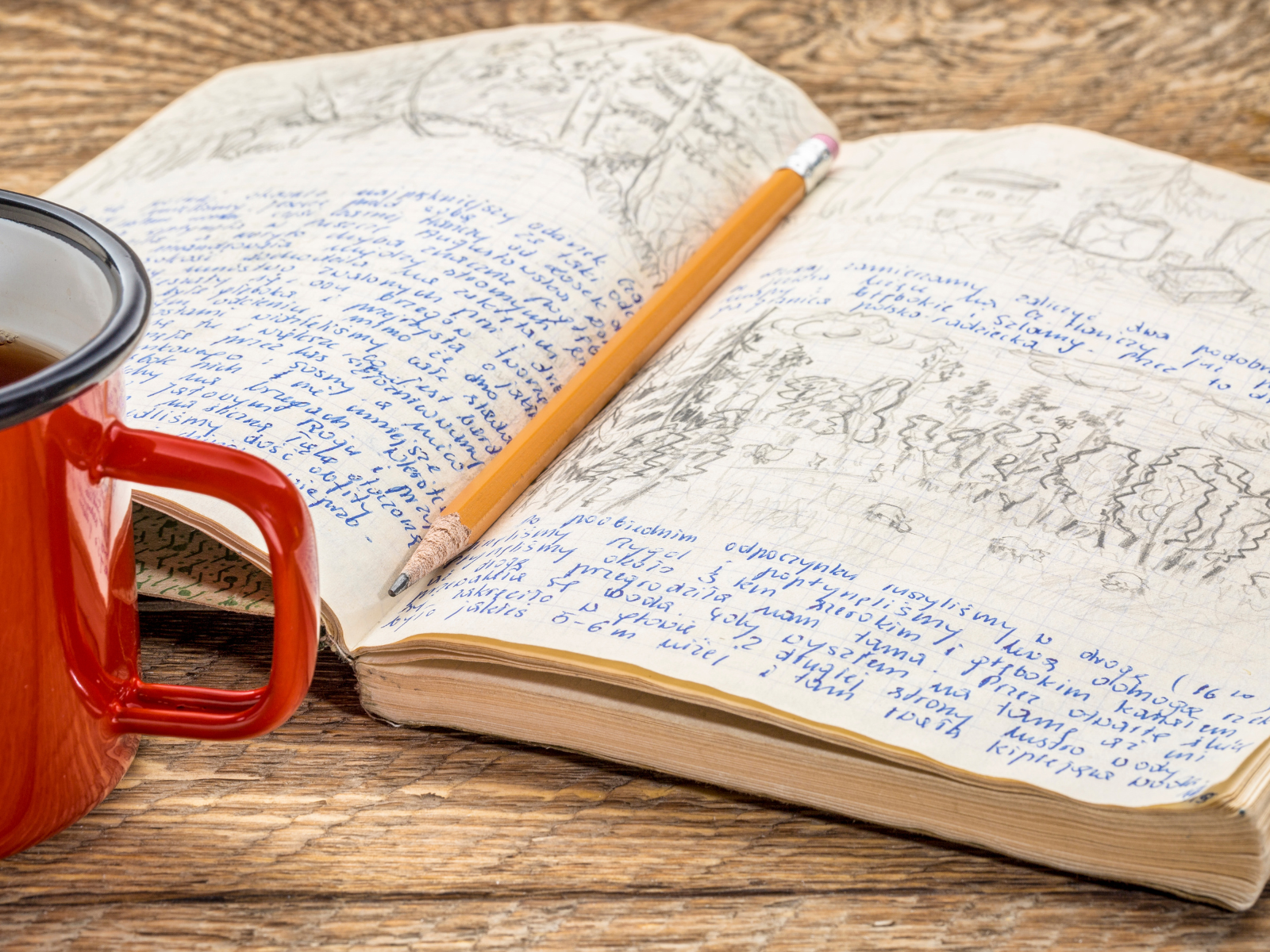
Making Journaling a Life-Long Habit
To reap the full benefits of journaling, it's important to make it a life-long habit.
This doesn't mean you have to write pages every day; even a few minutes of journaling can be beneficial.
The key is to make it a regular part of your routine.
As you continue to journal, you'll likely find that it becomes an essential part of your daily life, offering clarity, comfort, and a deeper understanding of your inner world.
Remember to be patient with yourself and allow your journaling practice to evolve naturally.
Most importantly, have fun with it; journaling is a personal journey of self-discovery, so make it an enjoyable and fulfilling experience.
Tips for Starting Your Journaling Practice
Now that we've explored the different types of journals, it's time to get started on your own journaling journey!
Here are some tips for beginners looking to establish a regular journaling habit:
- Start small: Don't feel pressure to write pages every day; begin with a manageable routine, such as writing for five minutes every morning or evening.
- Pick a time: Choose a specific time of day that works best for you and stick to it. This will help make journaling feel like a natural part of your daily routine.
- Find the right medium: Experiment with different mediums, such as pen and paper, a notes app, or a voice recorder, to find what works best for you.
- Don't censor yourself: Remember, journaling is a safe space for self-expression; don't hold back or worry about grammar and structure. Just write from the heart.
- Keep it private: Consider keeping your journal in a secure location where only you have access. This will allow you to write freely without fear of judgment.
- Be patient: As with any new habit, it takes time to establish a regular journaling practice. Be patient and persistent, and over time you'll see the benefits unfold.
Remember, these are just suggestions; the most important thing is to find what works best for you and make journaling a part of your everyday life.
So, now that you have all the tools and tips to start your own journaling practice, it's time to take the first step towards self-discovery and personal growth.
Grab a pen and paper or open up a new document on your computer - let your thoughts flow freely onto the page without any judgment or fear.
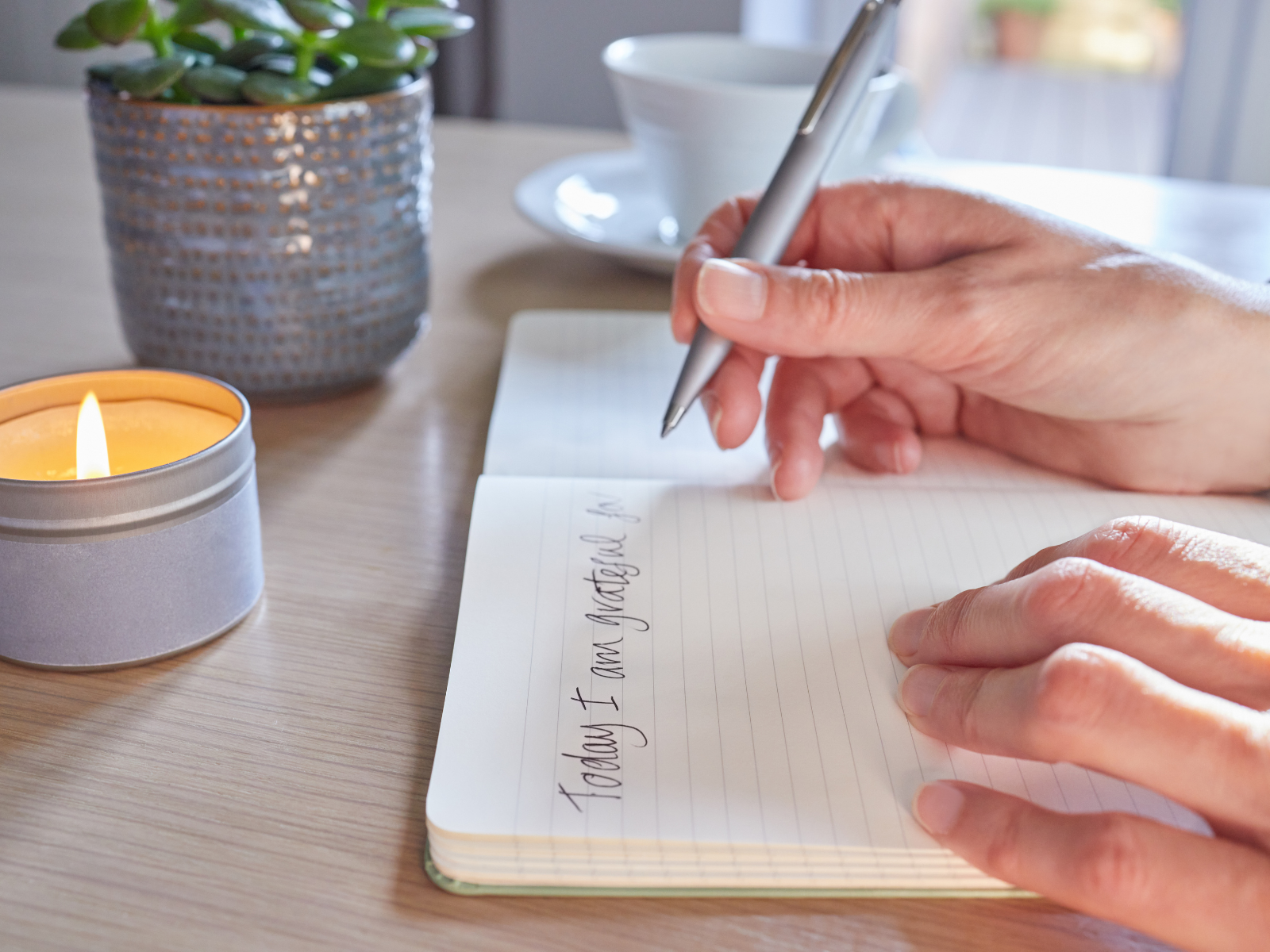
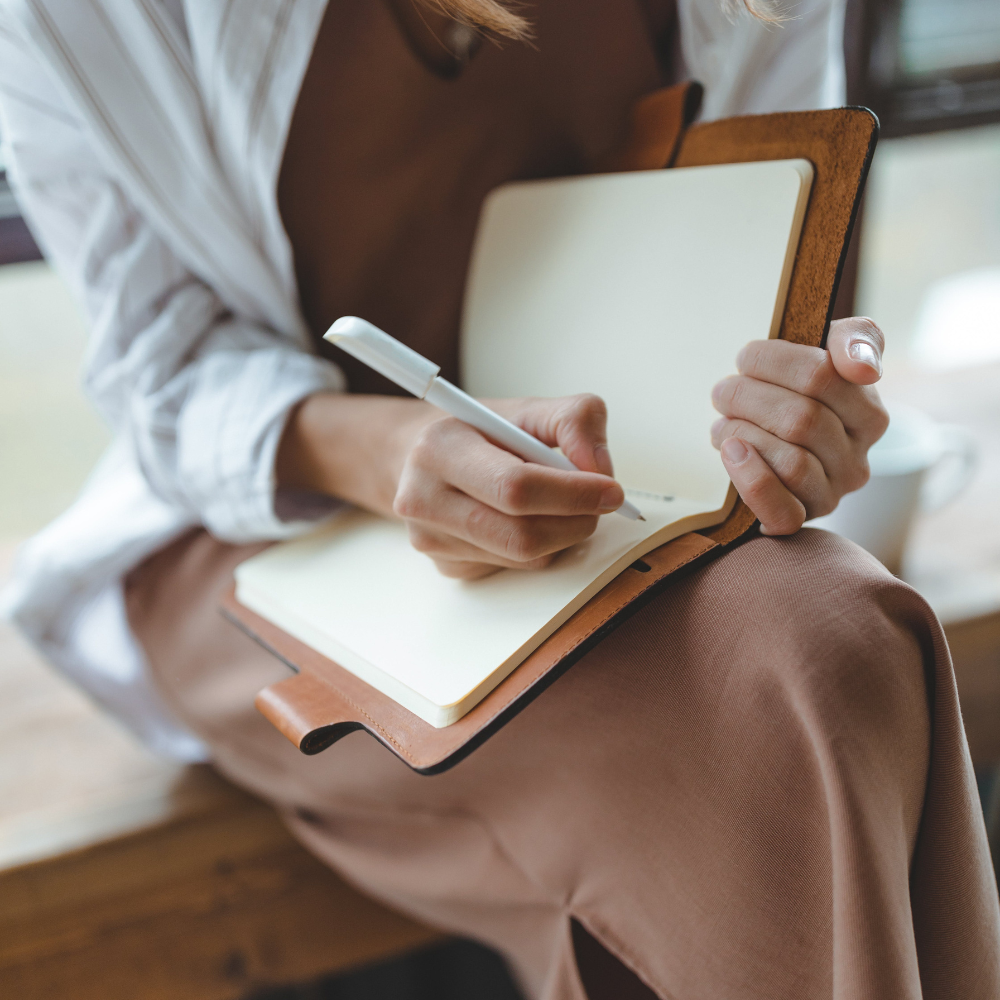
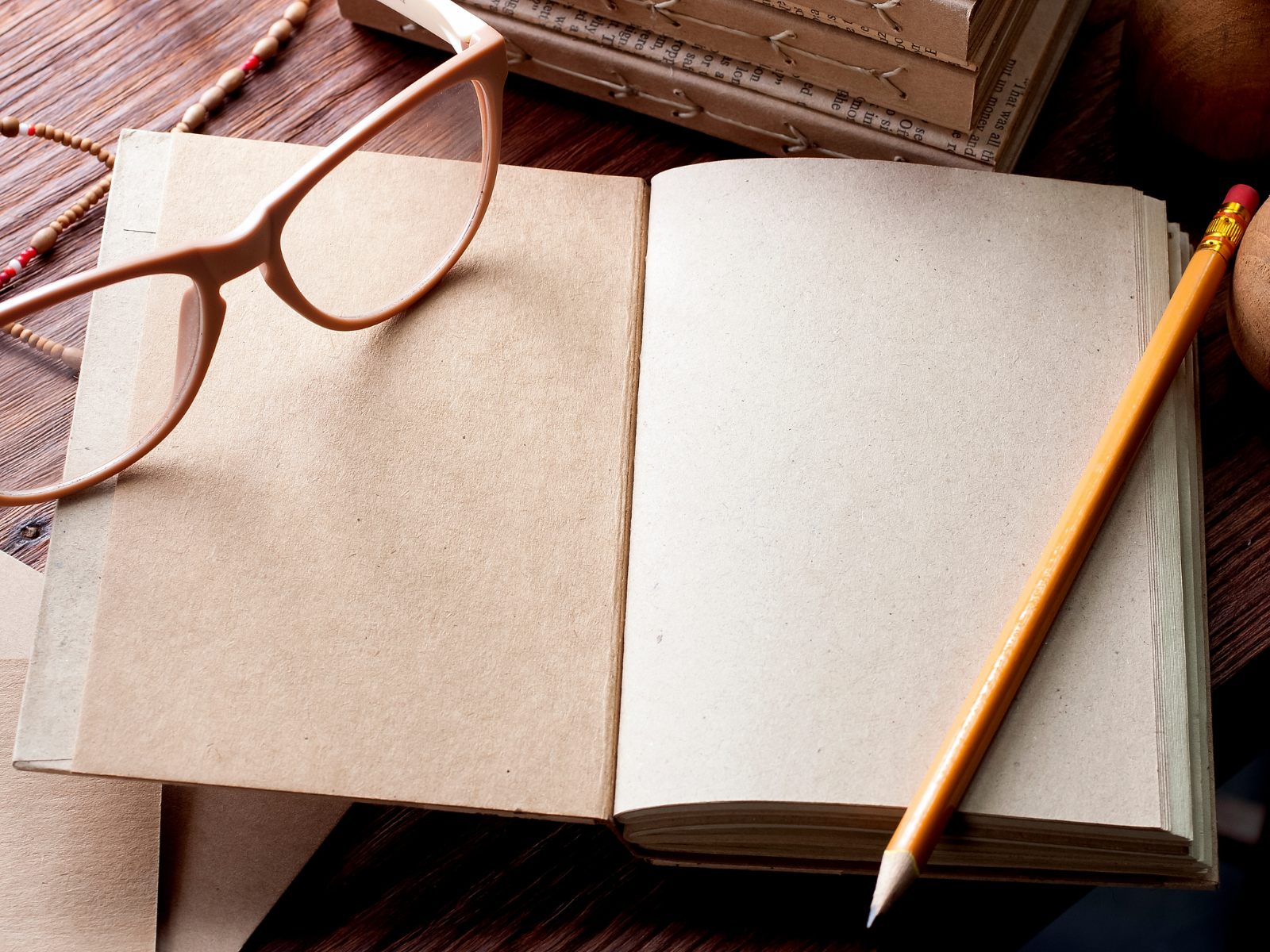
Embracing the Power of Journaling
Starting a journaling practice can be a transformative experience that enhances your mental and physical health, fosters personal growth, and provides a unique avenue for self-discovery.
Ultimately, the most important aspect of journaling is to find what works best for you and to make it a consistent habit.
Whether you prefer creative journaling or bullet journaling, gratitude or mindfulness journaling, the key is to engage in regular self-reflection and embrace the journey of self-discovery.
By choosing the right journaling medium, establishing a consistent writing routine, and using prompts and techniques like gratitude and bullet journaling, you can begin writing with purpose and honesty.
Over time, journaling can become a cherished habit that supports your overall well-being and helps you navigate the complexities of life with greater self-awareness and resilience.
Journaling is a wonderful hobby for anyone and everyone, and it's never too late to start!
It's a great way to unwind, express yourself, and improve your mental well-being.
Remember, there's no right or wrong way to journal, so don't be afraid to experiment and have fun.
So, go ahead and start your journaling practice today - you never know what incredible insights and transformations await you on this beautiful journey!
It's time to get started and enjoy the process of discovering yourself through journaling; happy writing!
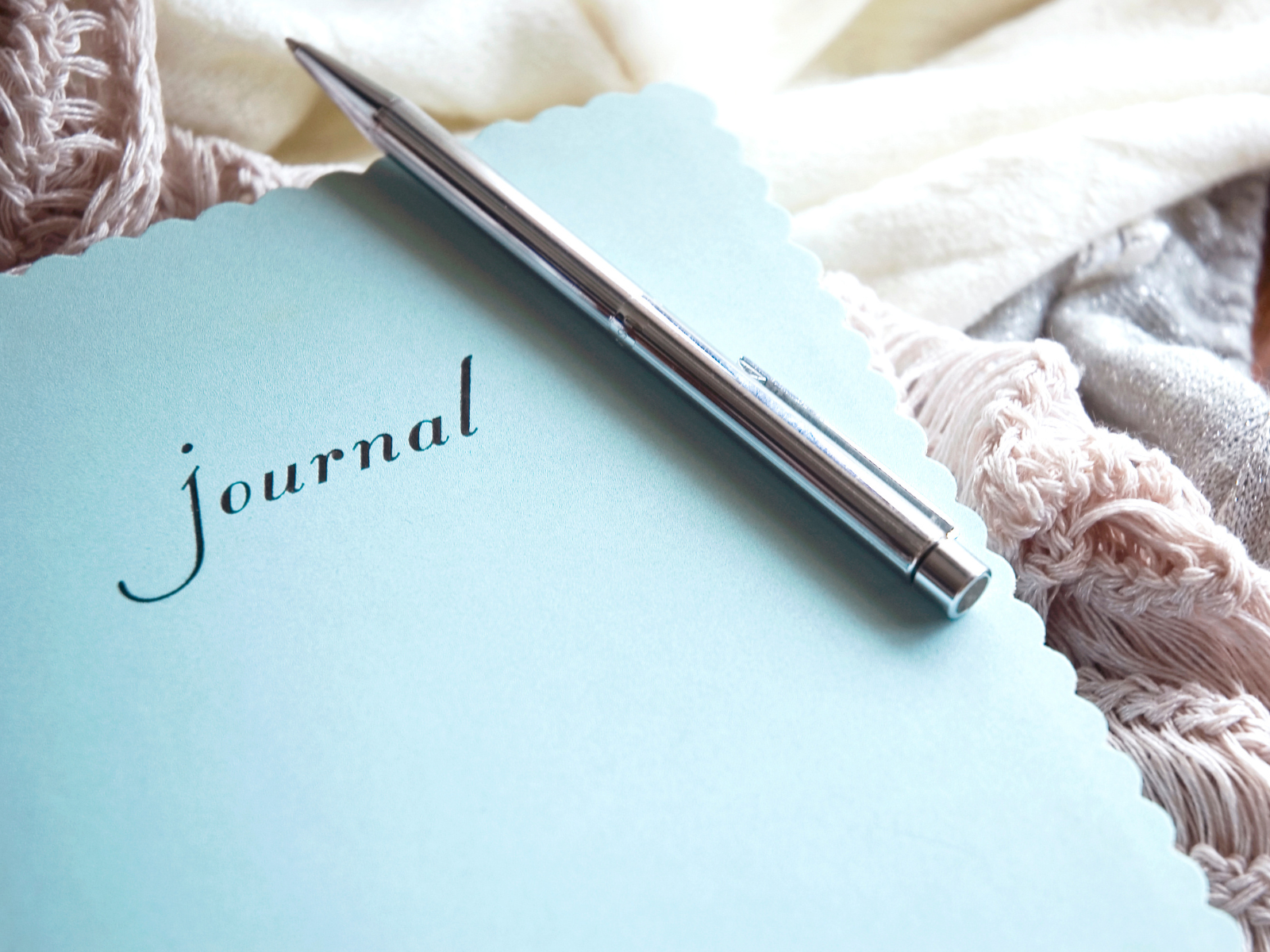
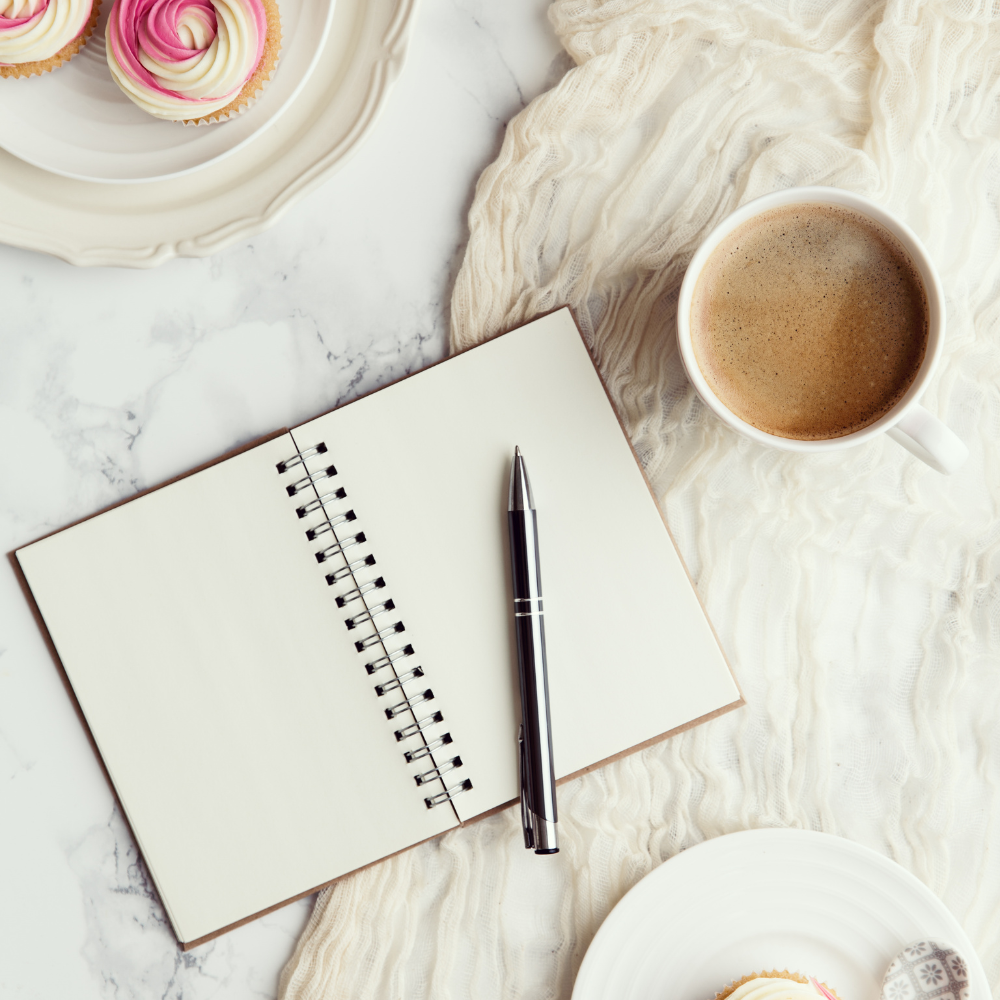
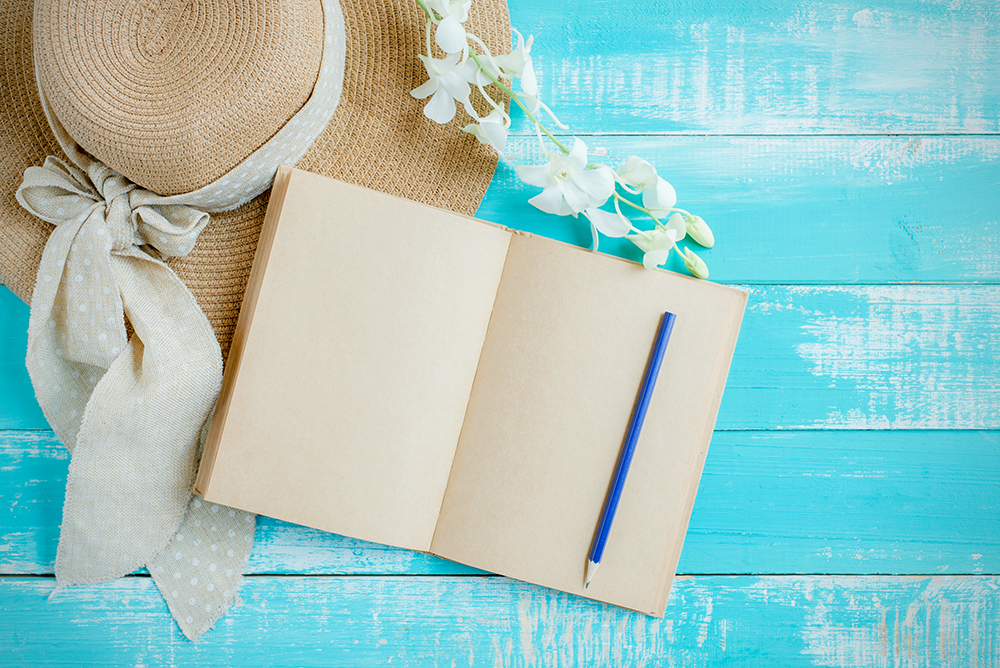
Eager to start journaling? Check out Carrie Walker's video!
Want even more content about creativity and art?
Be sure to check out all of our creative chronicles!
Eager to learn more about journals and sketchbooks?
Check out some of our other articles:
-What is the difference between a journal and an art journal?

